
Dr. Monia MN Kandil
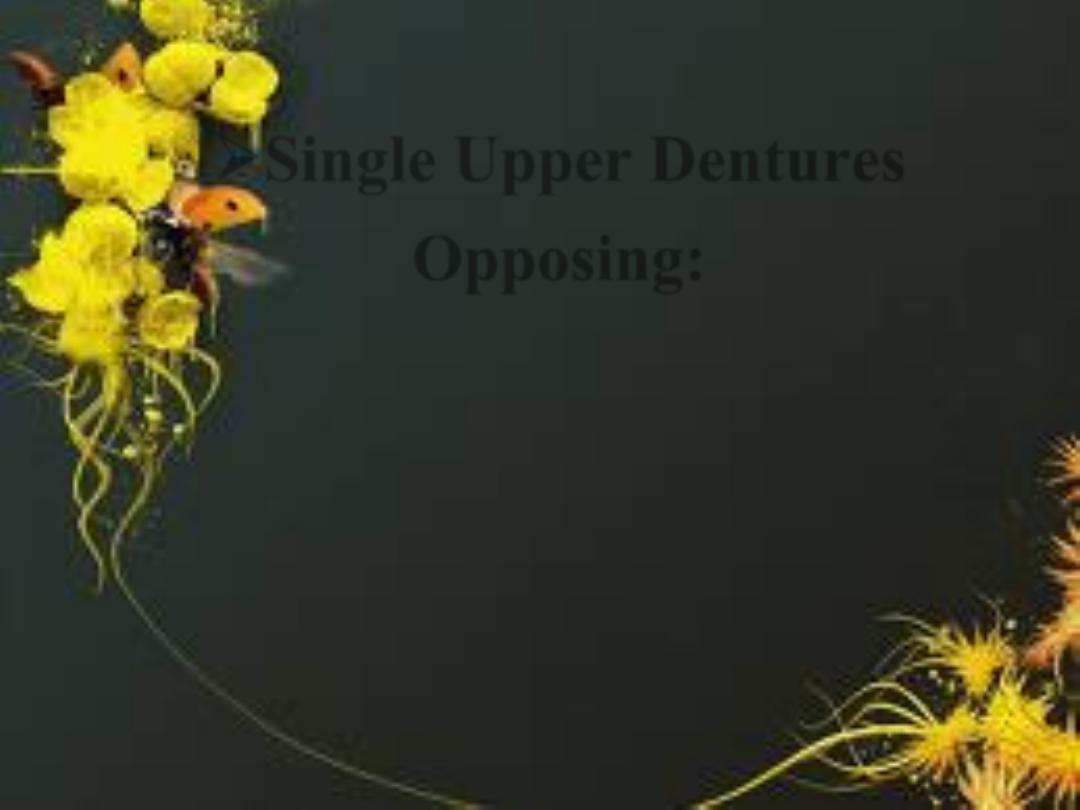
Single Upper Dentures
Opposing:
Single Lower Dentures
Opposing:
Upper Natural Dentition
Natural dentition
Partial lower denture

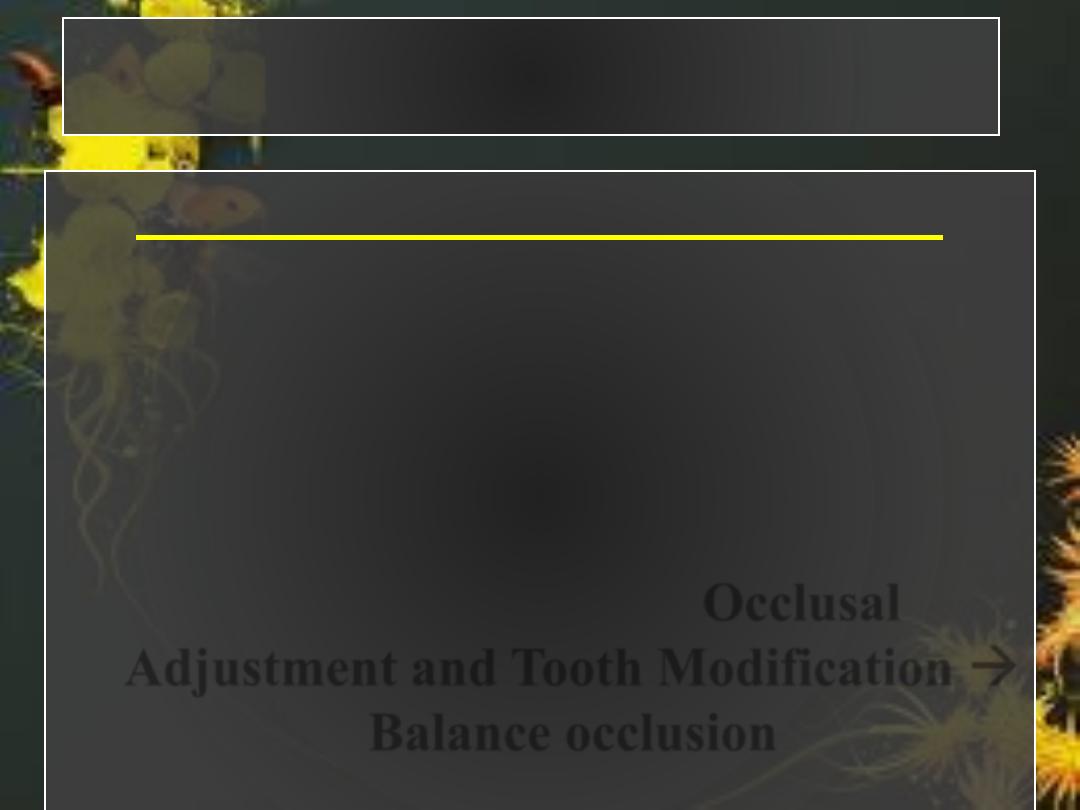
Over load on the Single Denture
How To Overcome These Problems
Applying
the principles of CD
construction
.
Maximum
base
extension
within functional anatomical limits.
Reduction
of the forces
to which the
denture is subject
Occlusal
Adjustment and Tooth Modification
Balance occlusion

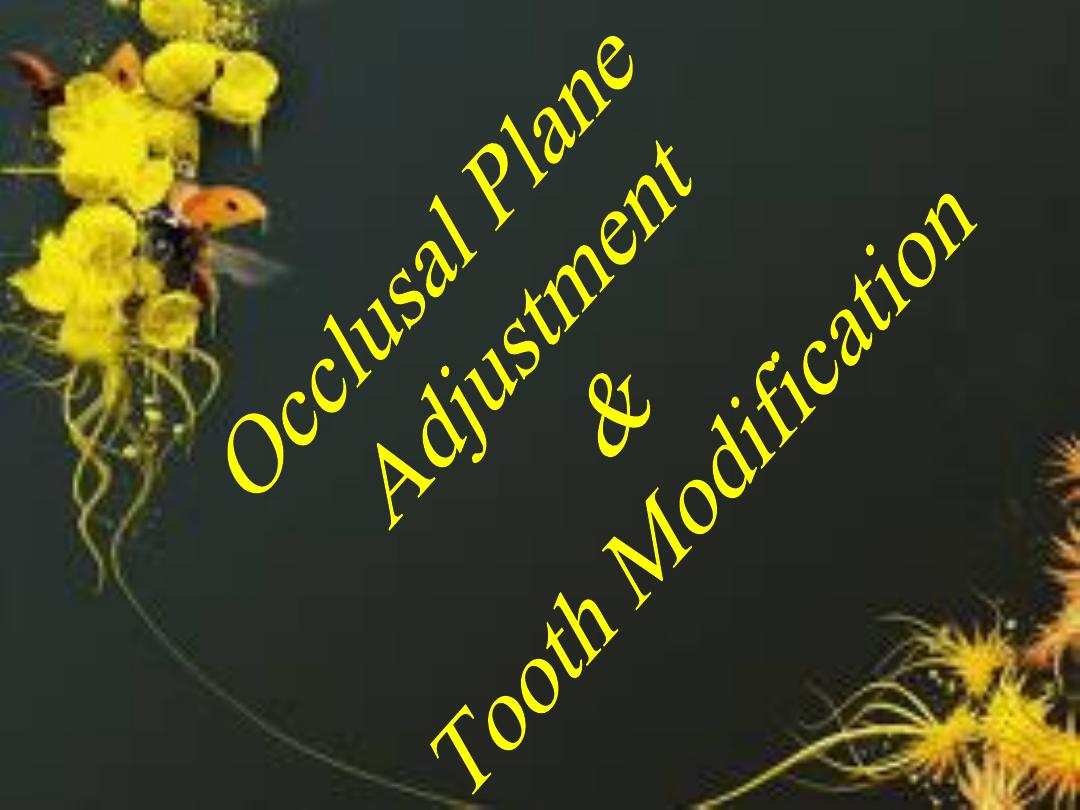
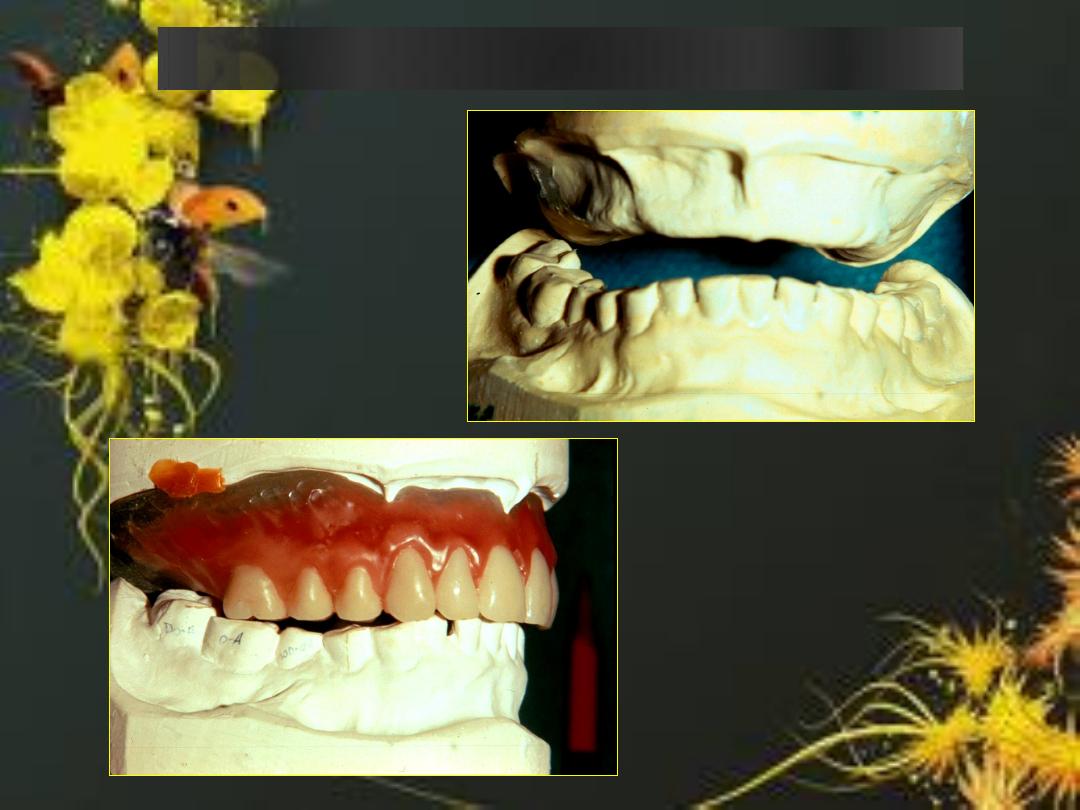
Occlusal Plane Discrepancies
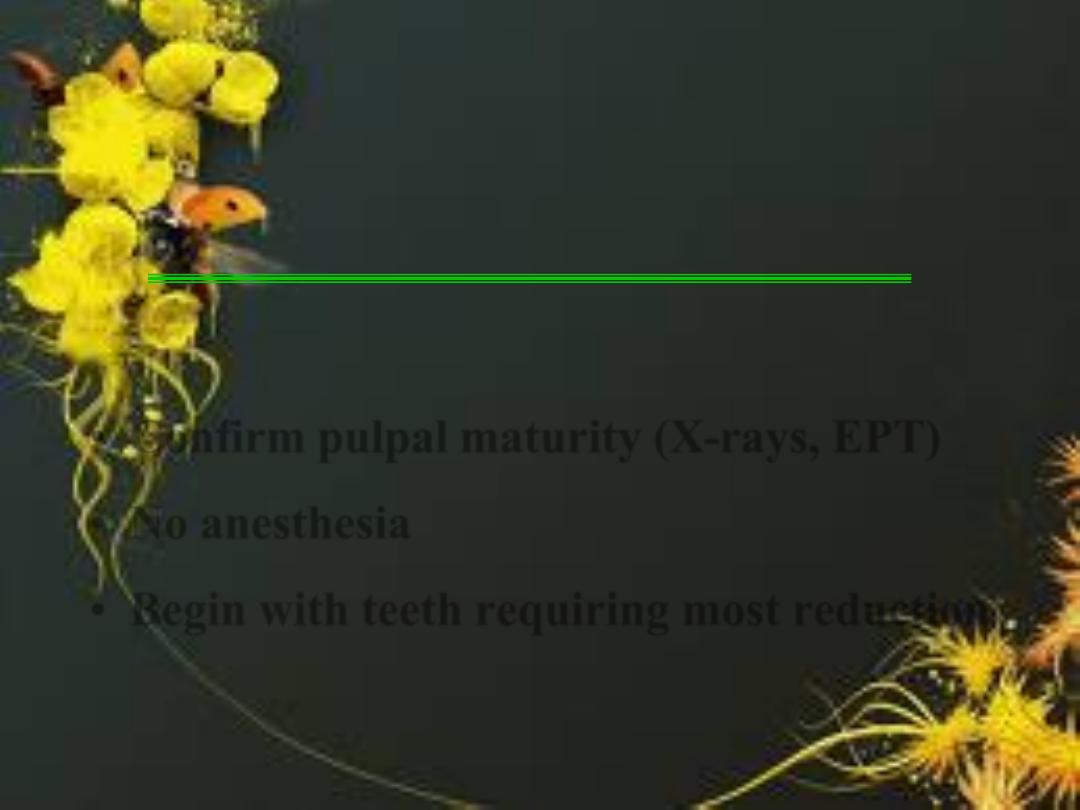
Tooth Reduction Protocol
• Confirm pulpal maturity (X-rays, EPT)
• No anesthesia
• Begin with teeth requiring most reduction
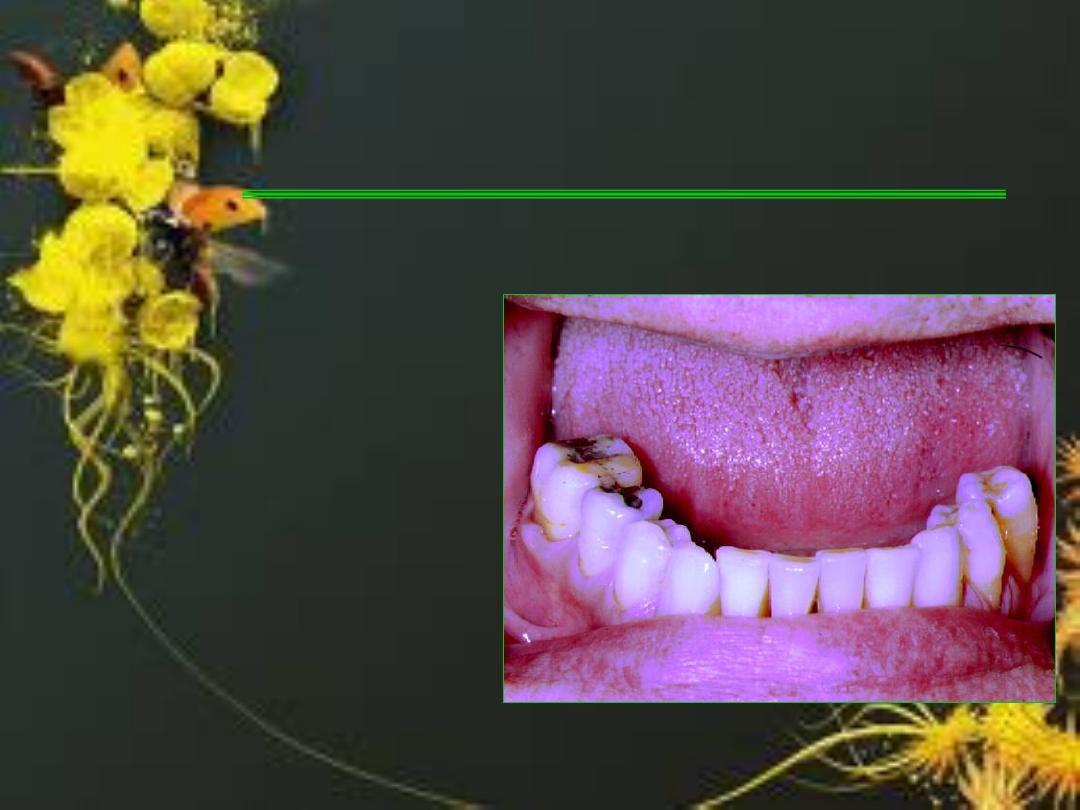
Preparing Plane of
Occlusion
Individual Tooth
Modifications
•Sharp Unworn
Cusps
Reduce
cuspal inclination.
•Heavily Abraded
Teeth
Reduce Bu-Li
width.
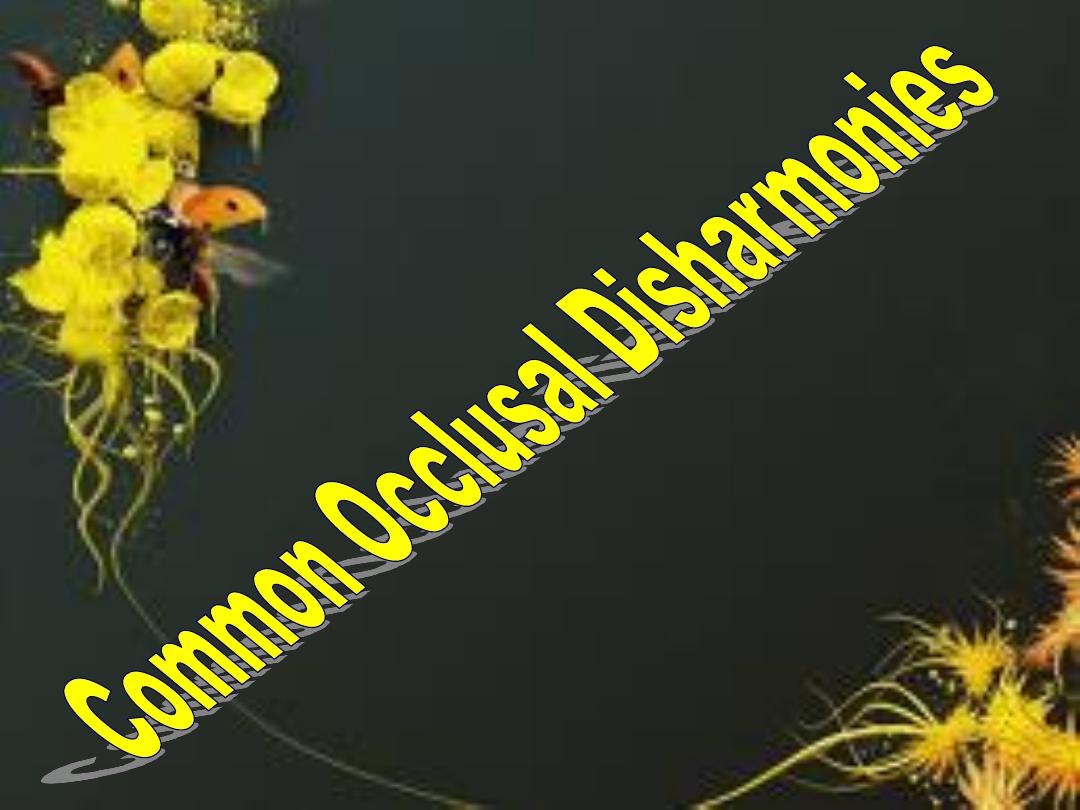
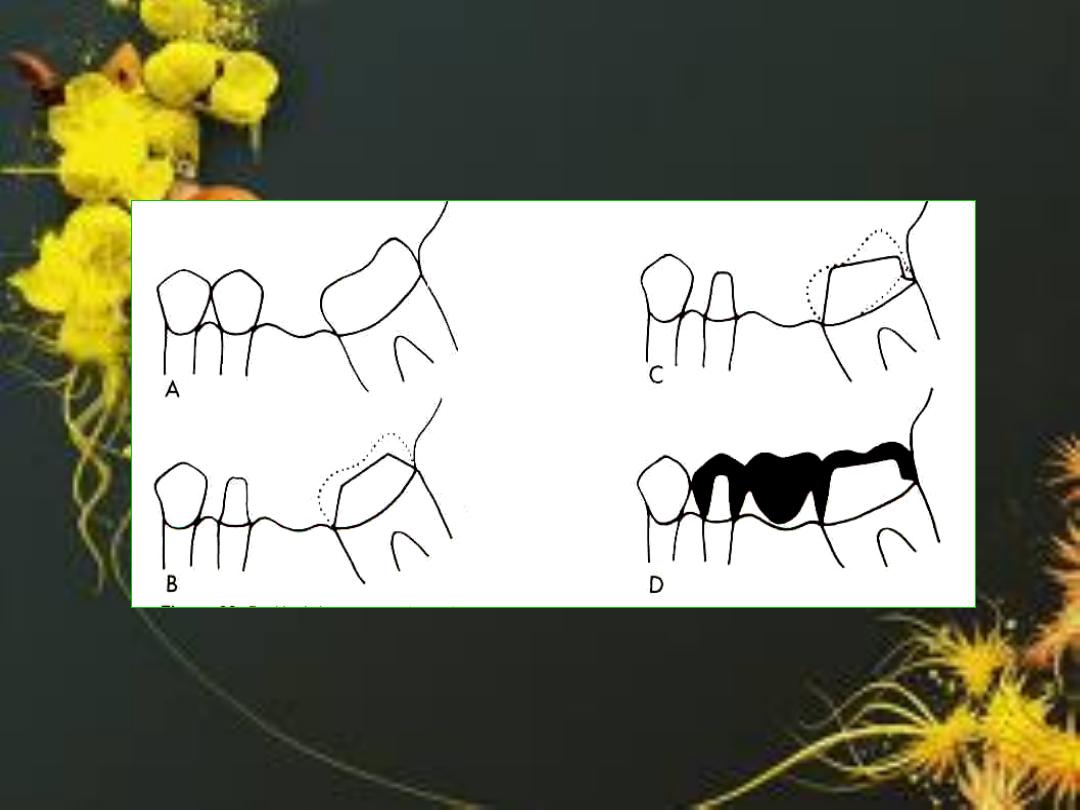
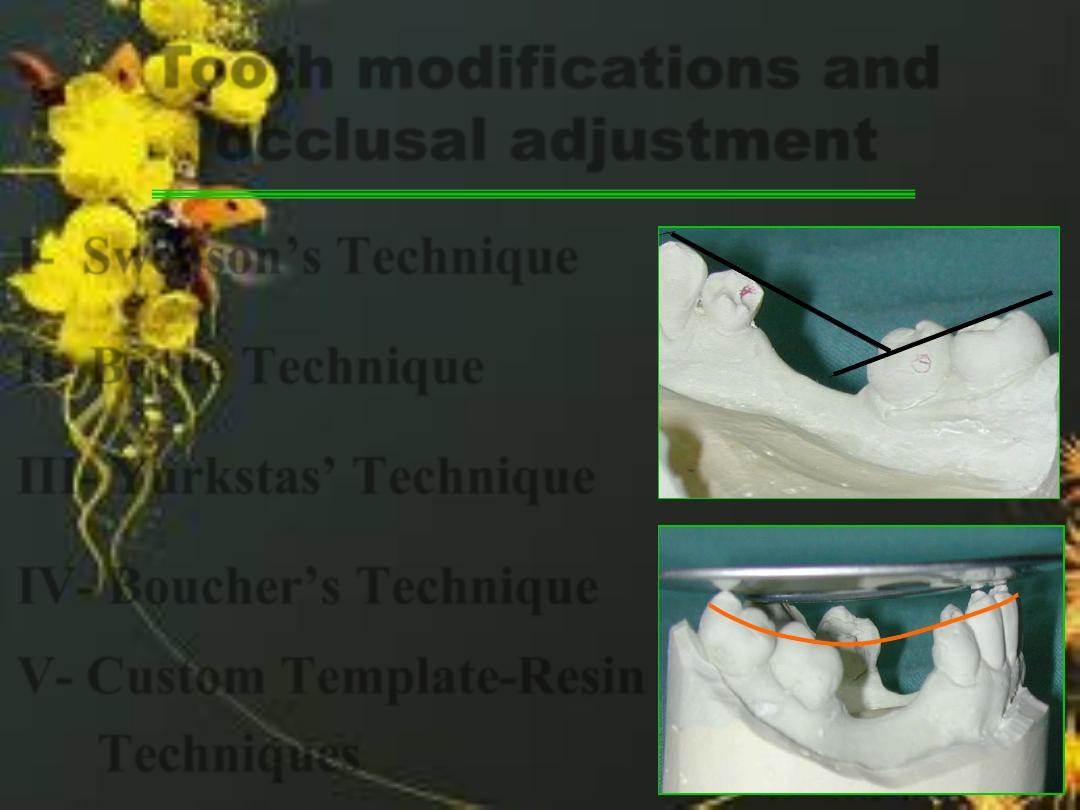
Tooth modifications and
occlusal adjustment
I- Swenson’s Technique
II- Bruce Technique
III- Yurkstas’ Technique
IV- Boucher’s Technique
V- Custom Template-Resin
Techniques
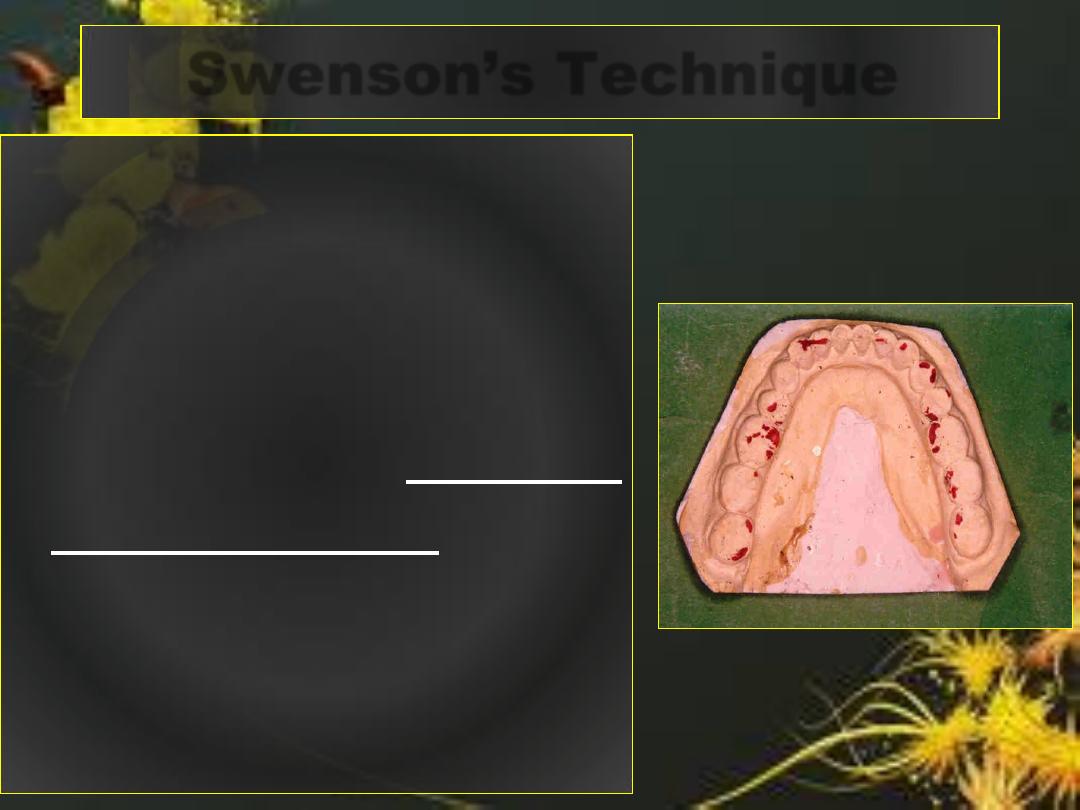
Swenson’s Technique
• Denture teeth are set and
when the natural teeth
interfere with placement of
denture teeth, stone teeth
are adjusted and marked on
the cast with pencil.
• The
natural
teeth
are
modified
by
using
the
diagnostic cast as a guide.
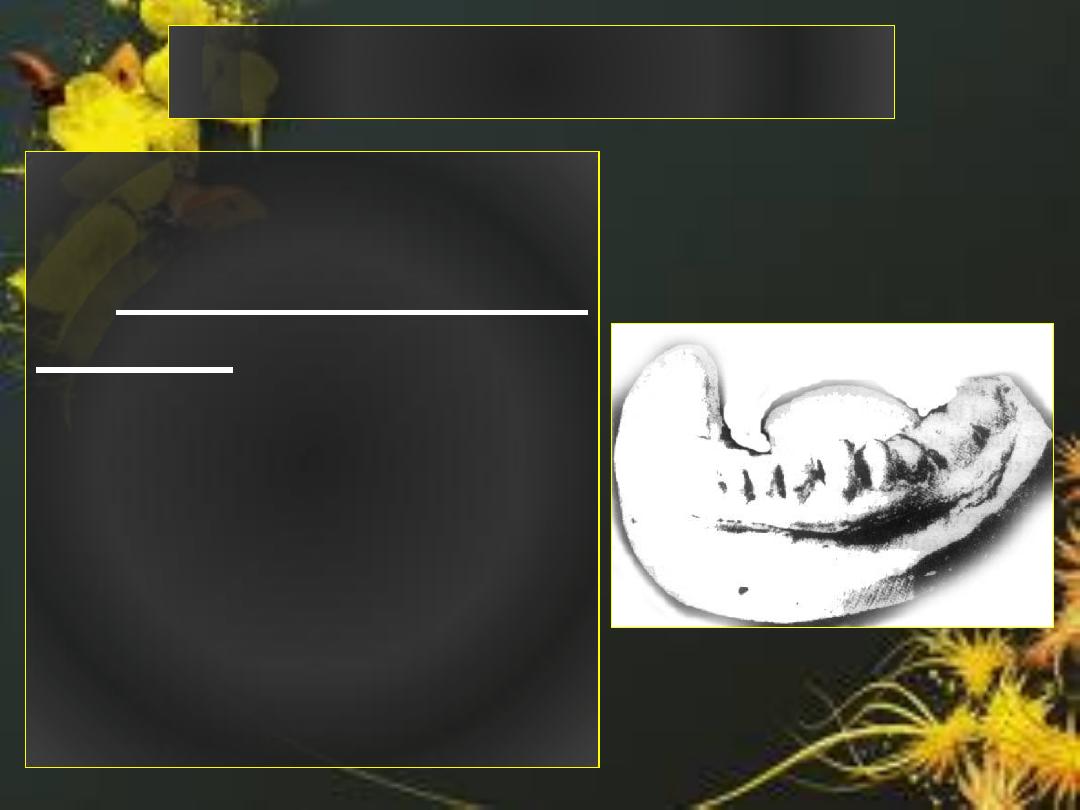
Bruce Technique
The Modifications are
made on the stone cast.
A clear acrylic resin
template is fabricated
over the modified stone
cast & with pressure
indicated past on the
internal surface of it ,
the unfavorable areas
are shown remove
them.

The interferences are removed by
maxillary porcelain teeth
movement of the
over the mandibular stone teeth.
Prematurity's are identified and removed
by grinding the natural teeth. The
procedure is repeated for right and lateral
excursions until a harmonious balanced
occlusion is established.
Boucher Technique
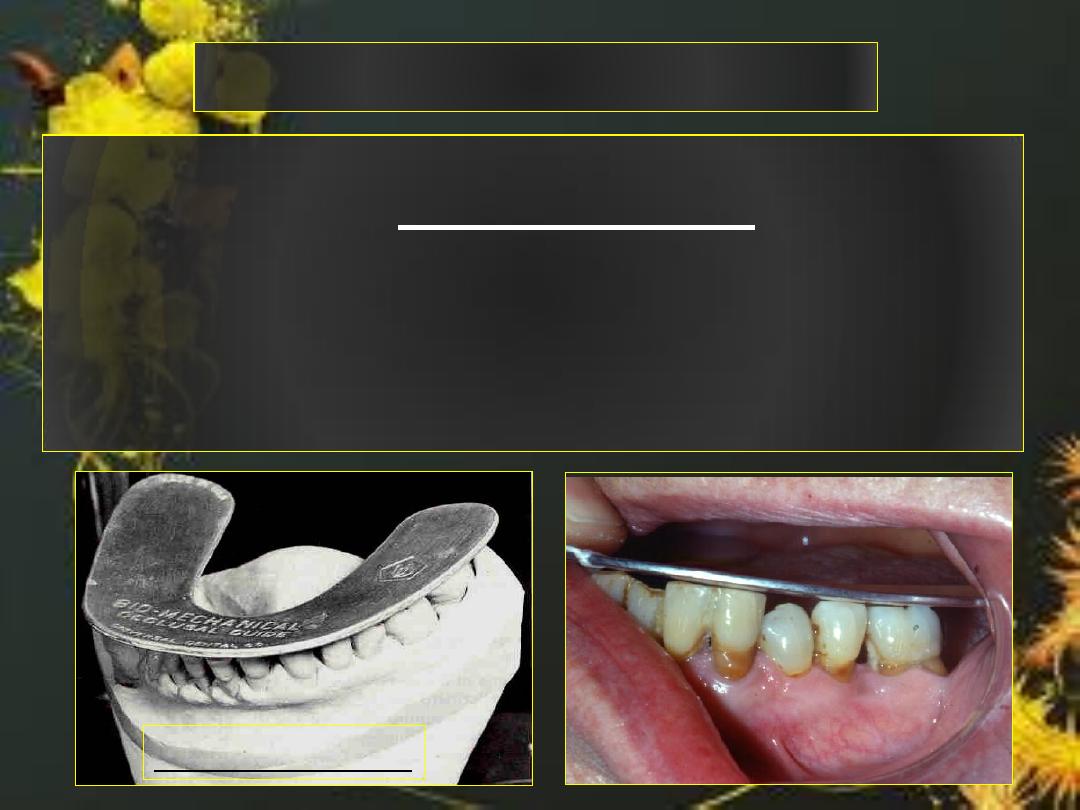
The use of a metal U-shaped occlusal
template that is slightly convex on the
lower surface is placed on the occlusal
surfaces of the remaining teeth.
20° Template
Yurkstas Technique
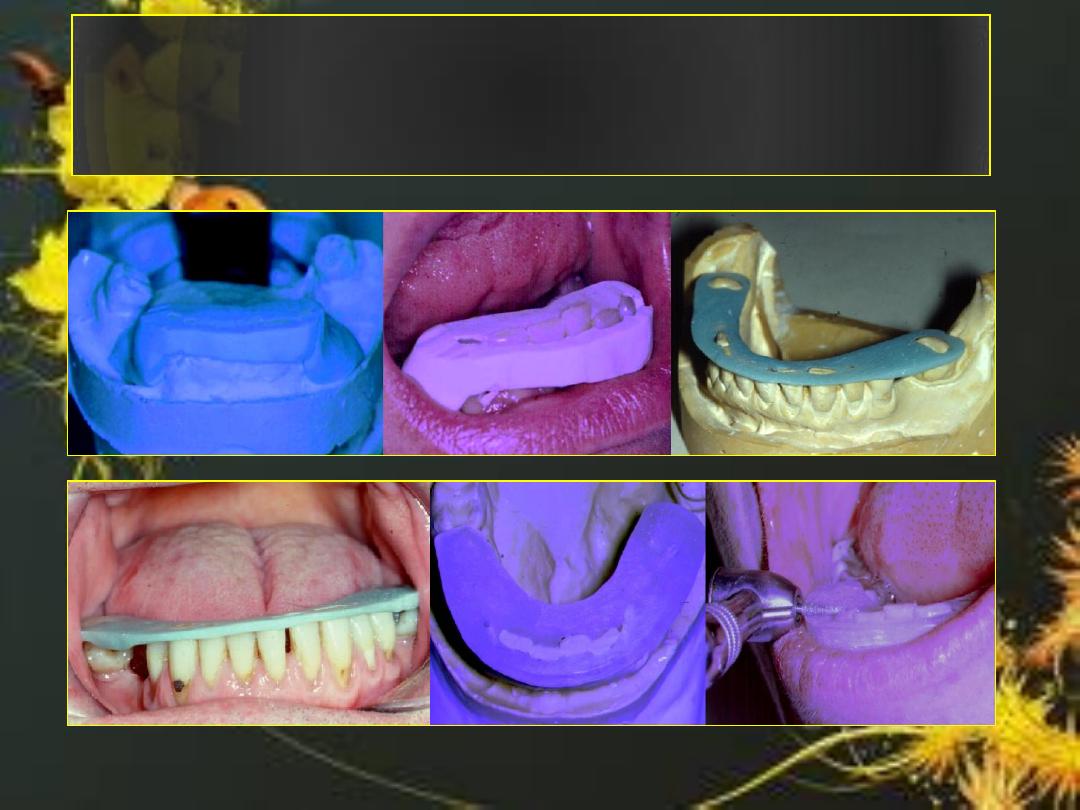
Custom Template – Resin
Techniques
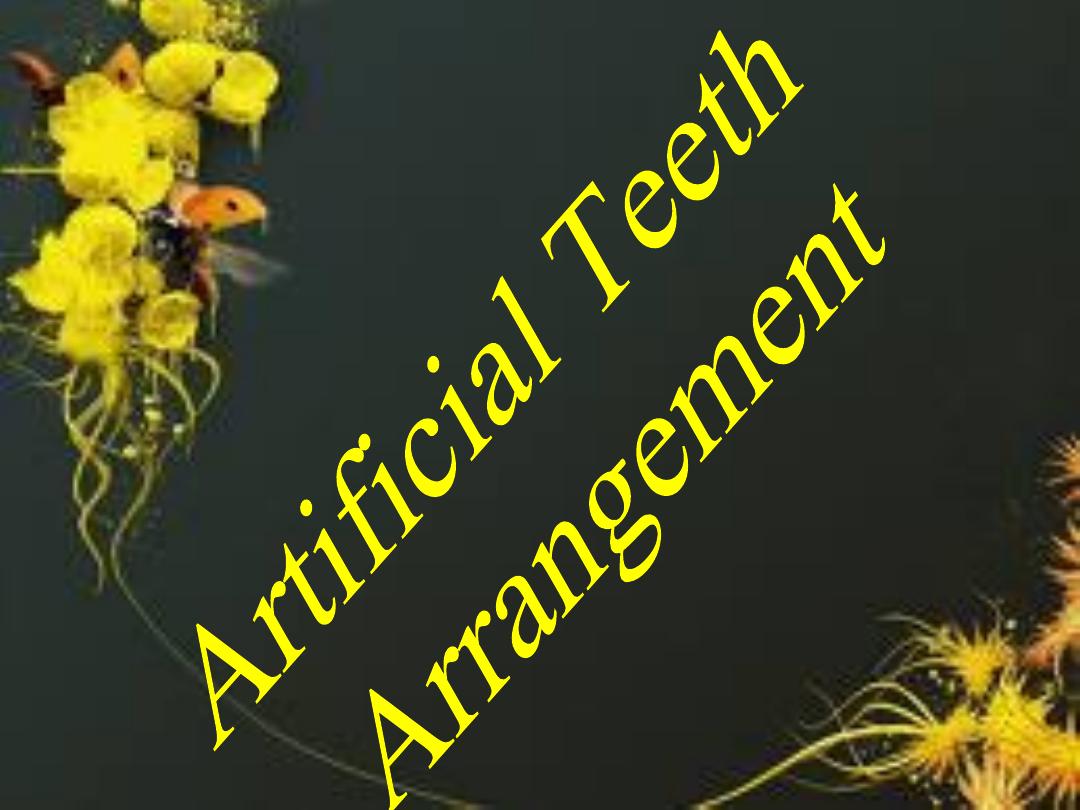
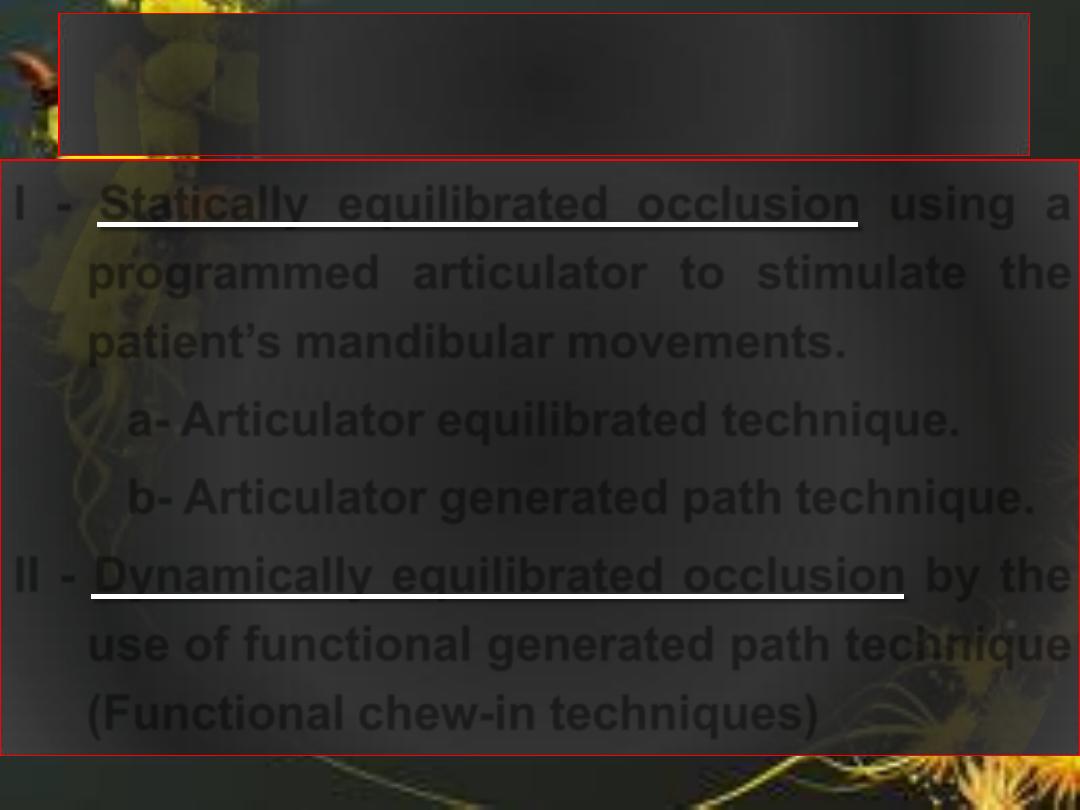
I - Statically equilibrated occlusion using a
programmed articulator to stimulate the
patient’s mandibular movements.
a- Articulator equilibrated technique.
b- Articulator generated path technique.
II - Dynamically equilibrated occlusion by the
use of functional generated path technique
(Functional chew-in techniques)
Methods Used To Achieve
Balance Articulation:
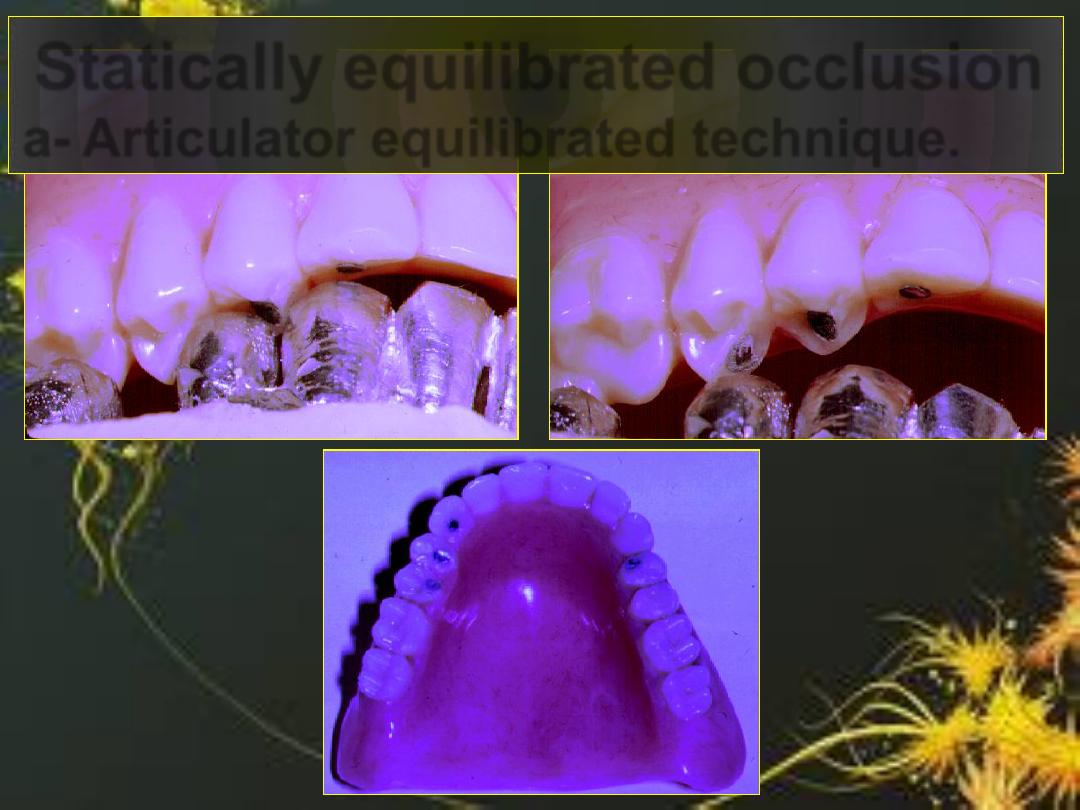
Statically equilibrated occlusion
a- Articulator equilibrated technique.
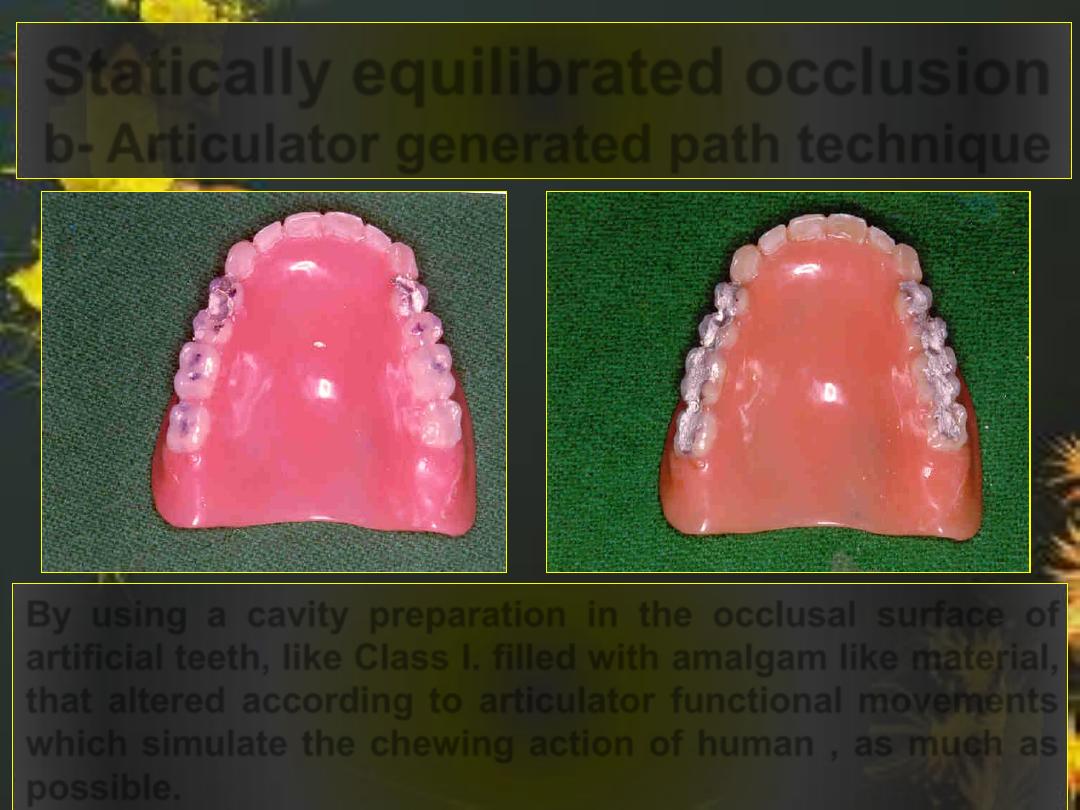
Statically equilibrated occlusion
b- Articulator generated path technique
before
after
By using a cavity preparation in the occlusal surface of
artificial teeth, like Class I. filled with amalgam like material,
that altered according to articulator functional movements
which simulate the chewing action of human , as much as
possible.
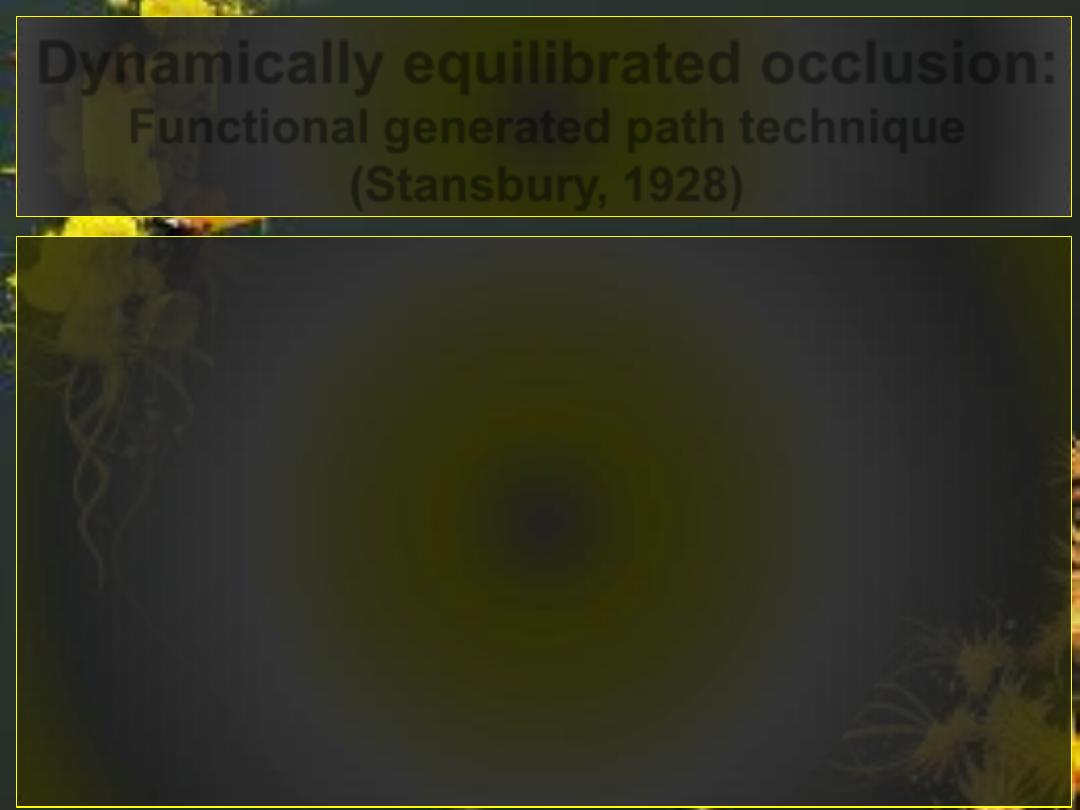
Dynamically equilibrated occlusion:
Functional generated path technique
(Stansbury, 1928)
•An upper bit-rim of compound (preserve VD), that
trimmed buccaly & lingually for lat. freedom
movements, covers with Carding wax that
molded
inside
patient’s mouth (developing
functional occlusion path).
•Pouring the Carding wax with stone give us a
model represent the functional path of lower
natural teeth.
•Arranged upper teeth first related to conventional
lower teeth, then to the lower model represents the
“functionally generated occlusion”.
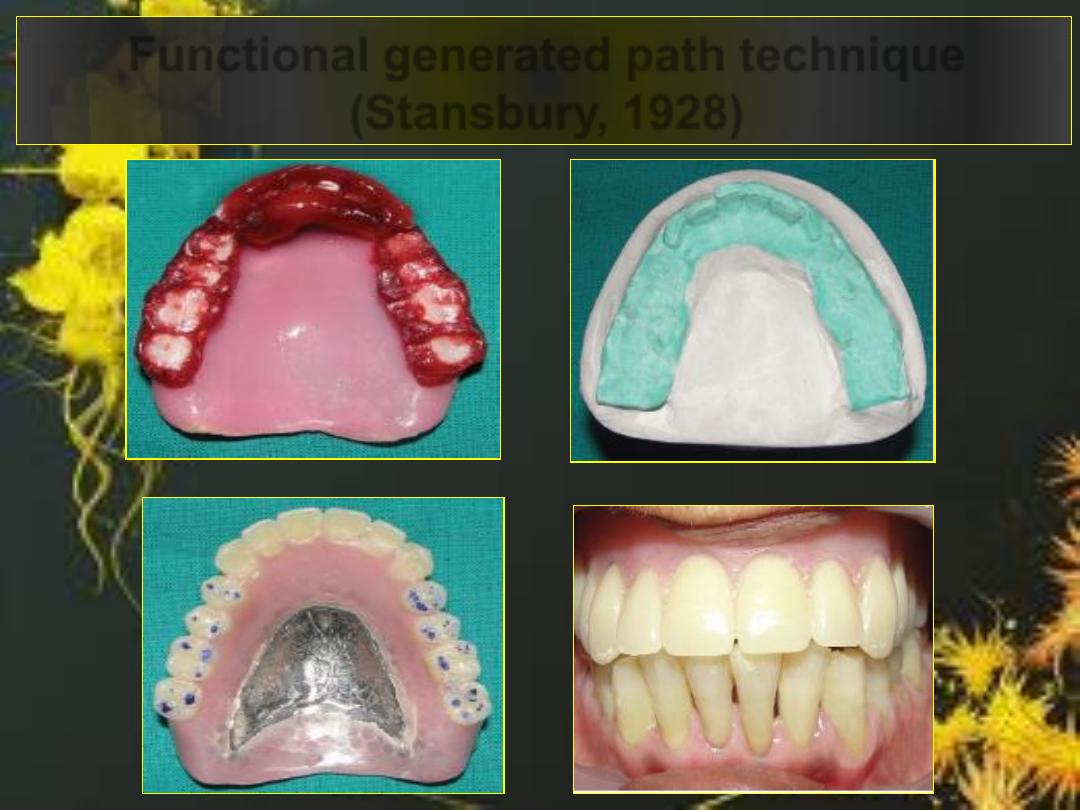
Functional generated path technique
(Stansbury, 1928)
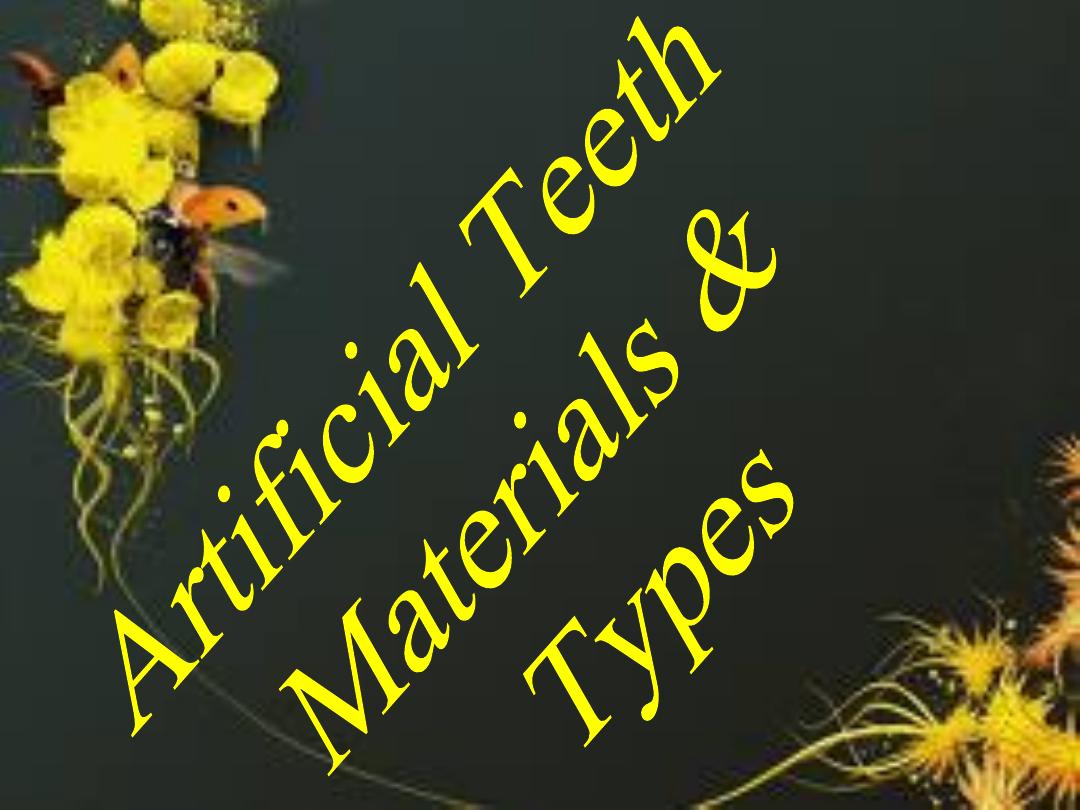
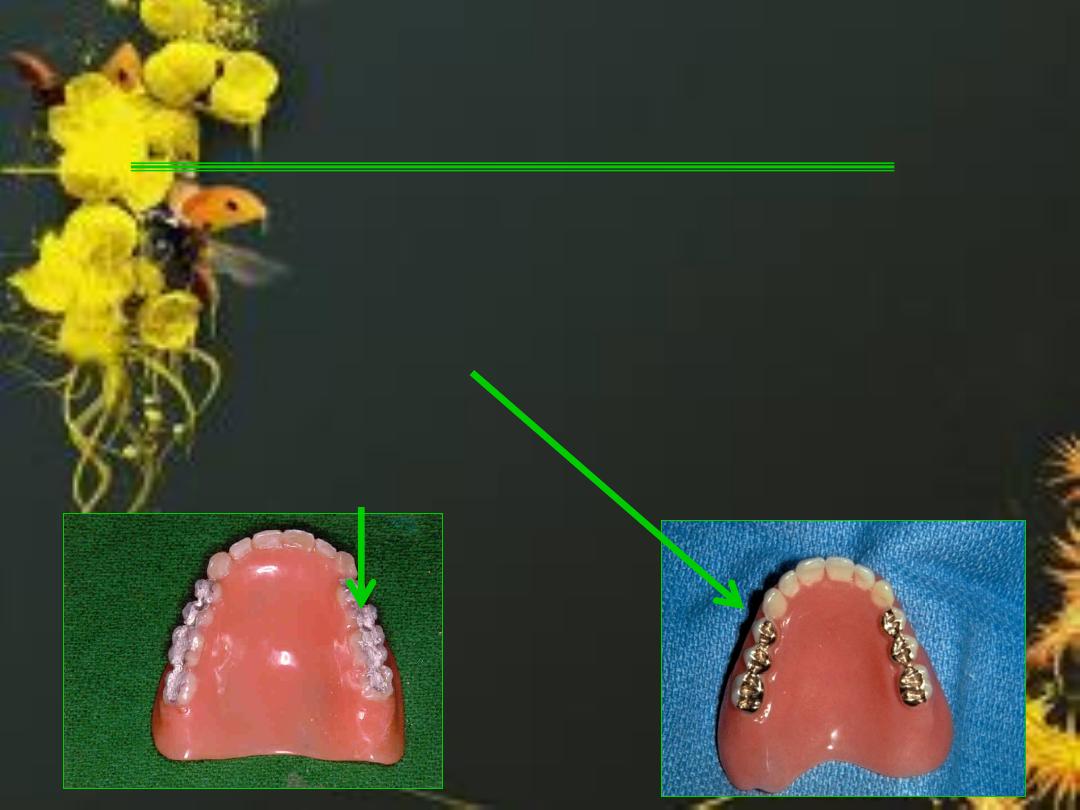
Artificial Tooth Material
• Plastic (acrylic , cross linked resin )
• Porcelain
• Metal (casted)
• Acrylic with
gold occlusal surface,
or
a
malgam stoppers.

1- Porcelain teeth
2- Acrylic resin teeth
3- Acrylic resin with gold occlusal
surfaces
4- Acrylic resin with amalgam
stops
5- Cross-linked resin

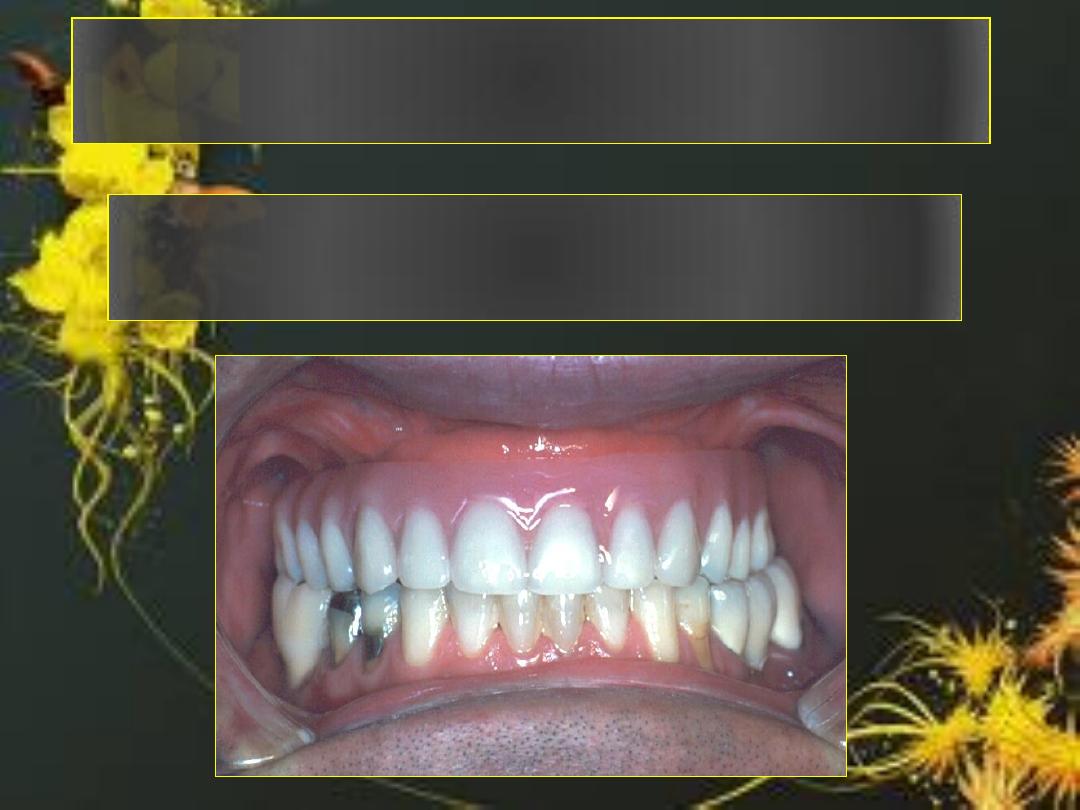
Implant Assisted Overlay Maxillary
Dentures Against lower natural teeth
Occlusion is
bilateral balance
in such
patients

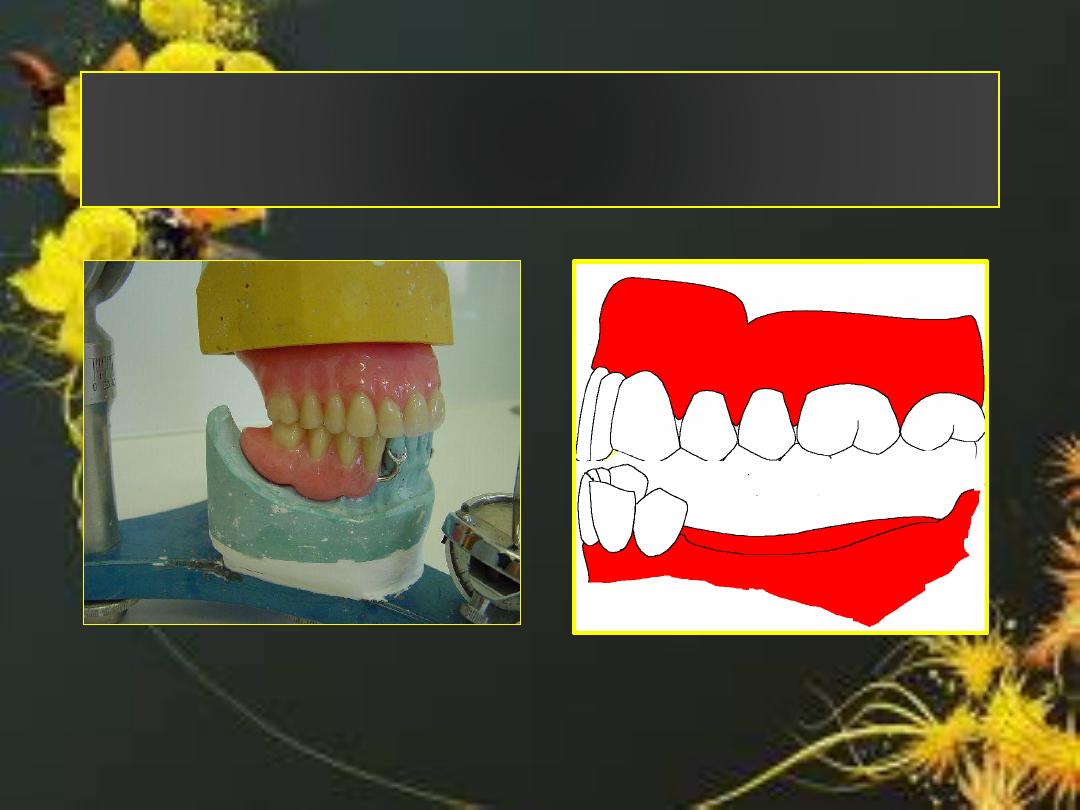
Single denture opposing
distal extension RPD
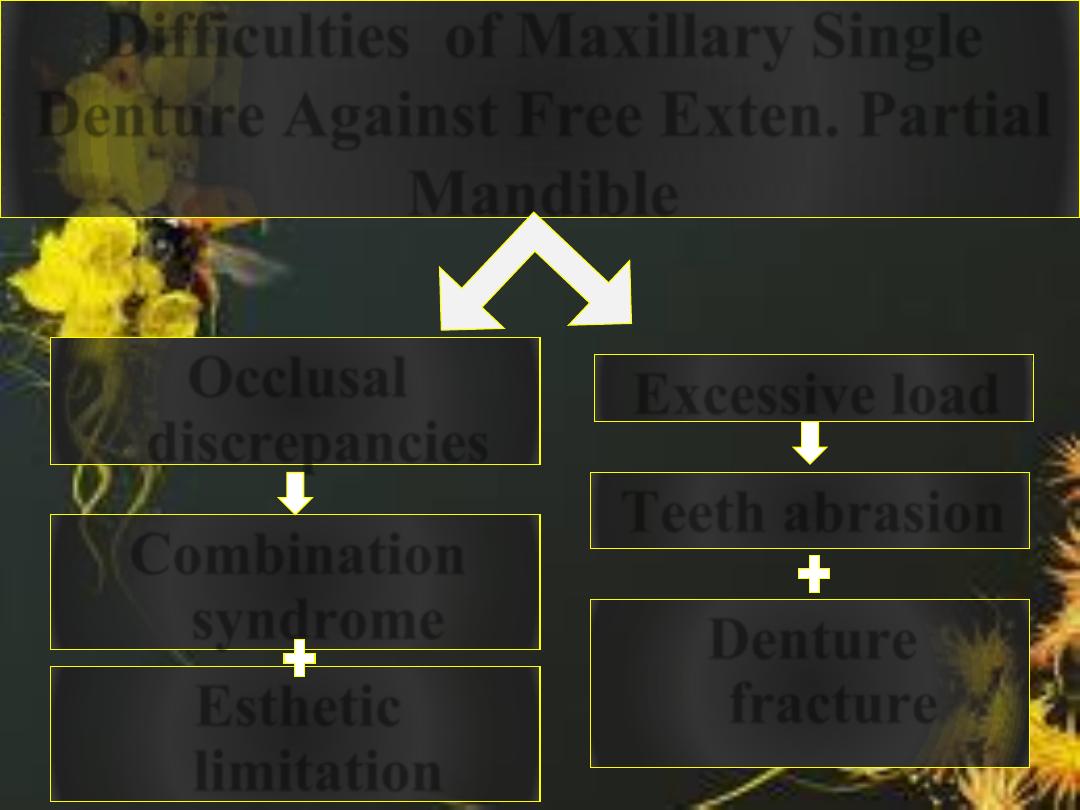
Difficulties of Maxillary Single
Denture Against Free Exten. Partial
Mandible
Occlusal
discrepancies
Excessive load
Combination
syndrome
Denture
fracture
Teeth abrasion
Esthetic
limitation
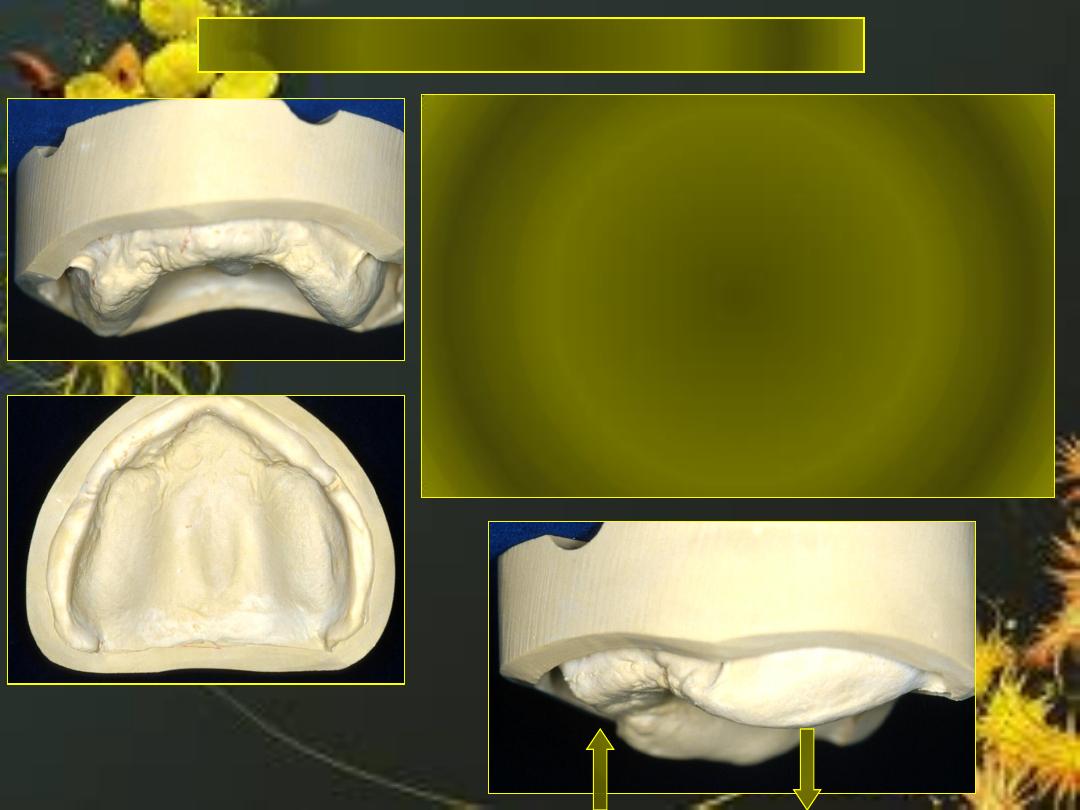
Combination Syndrome
A specific pattern of resorption
when anterior mandibular teeth
are retained and are opposed by
a complete maxillary denture.
The premaxilla undergoes severe
resorption
and
is
usually
accompanied by the development
of fibrous hyperplasia of the
maxillary tuberosity.
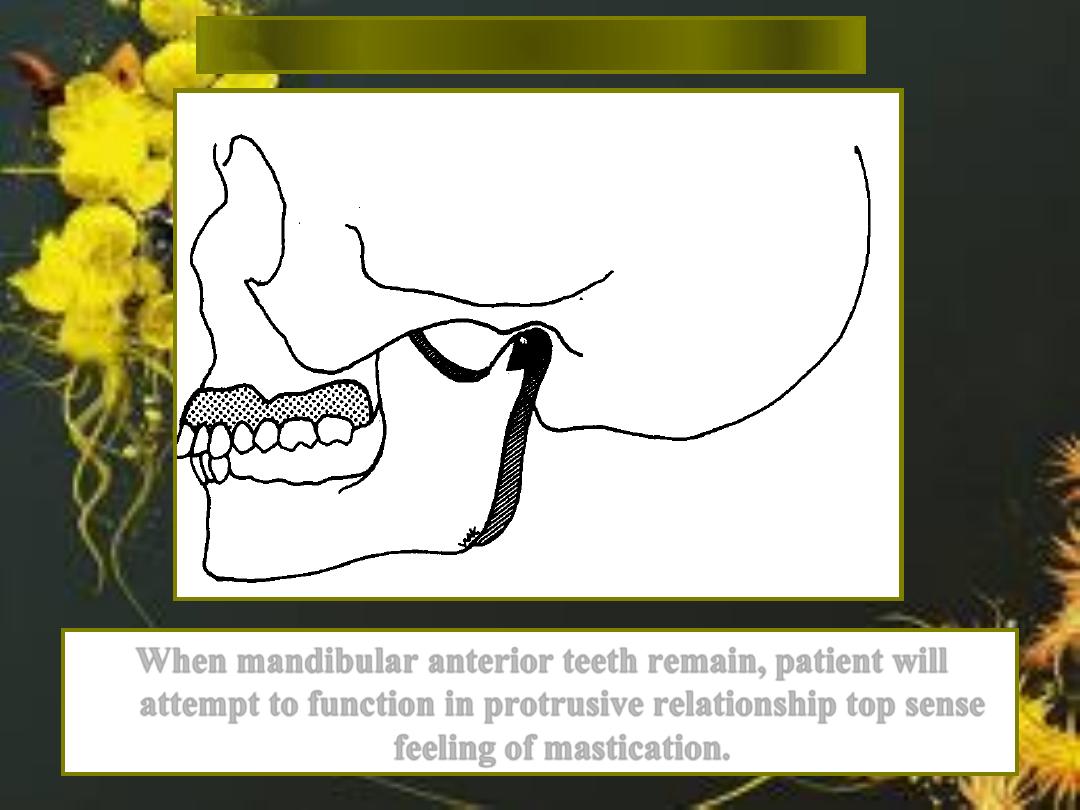
When mandibular anterior teeth remain, patient will
attempt to function in protrusive relationship top sense
feeling of mastication
.
Combination Syndrome
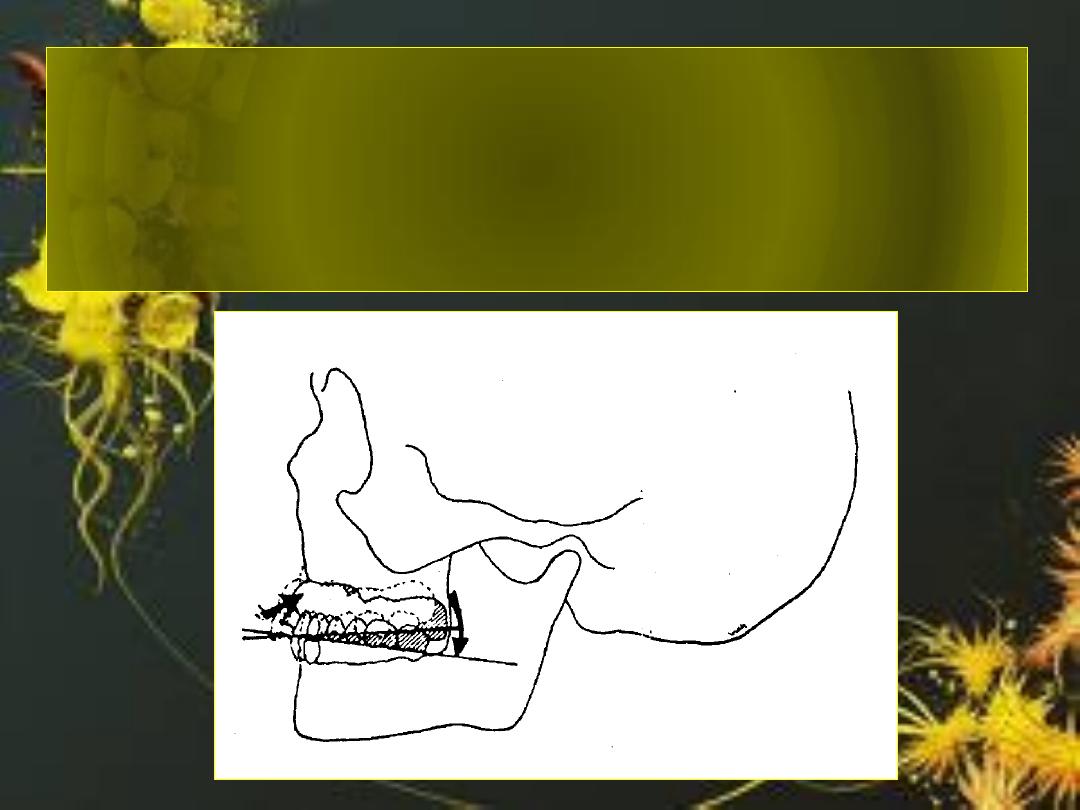
As bone is resorbed from maxillary anterior
ridge, denture will tip upward anteriorly and
downward posteriorly V. D. O. will begin to
decrease
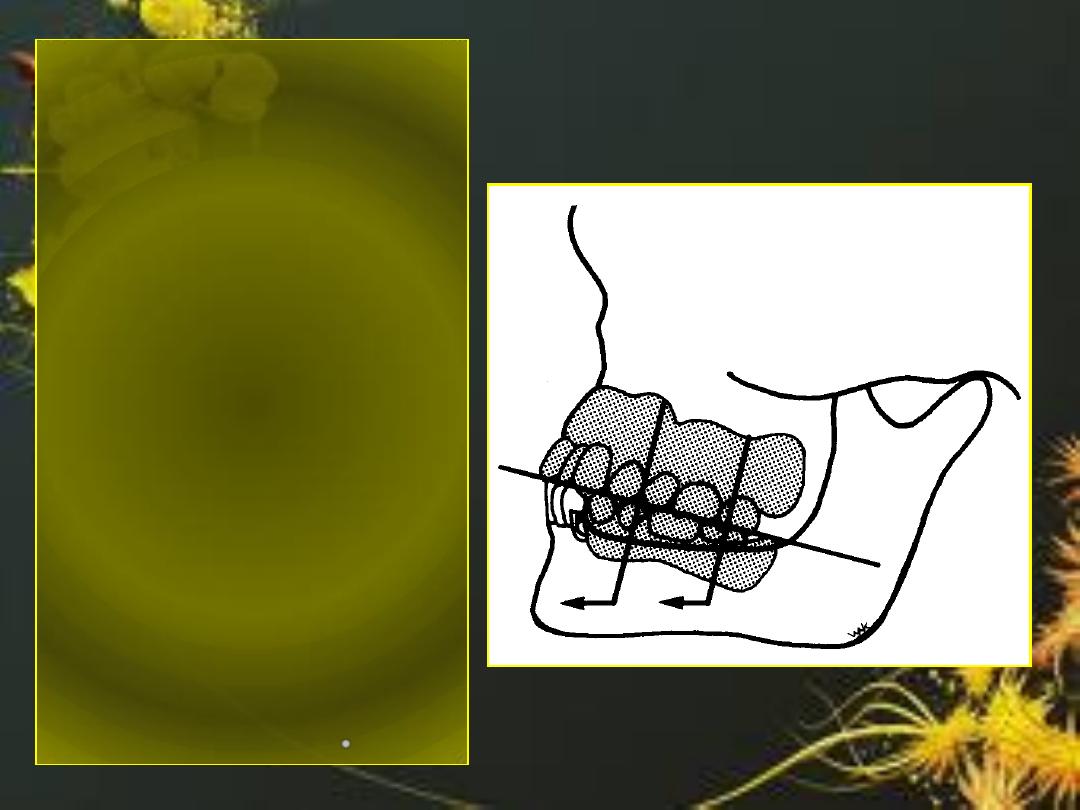
The change in the
angulation of the
occlusal plane
may contribute
to the loss of
support for the
remaining
natural teeth or
precipitate
periodontal
changes.
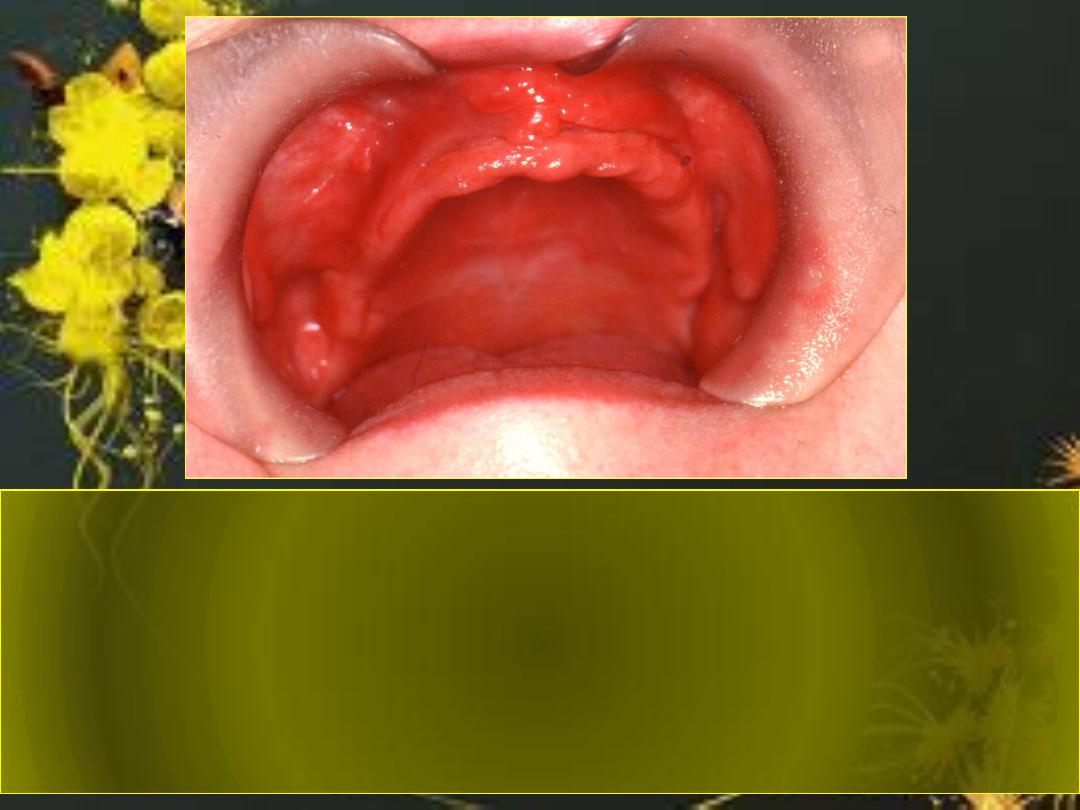
The irritated labio-buccal flange of the denture can
be develop
Epulis Fissuratum
, and associated
with overgrowth of fibrous tissue covering the
maxillary tuberosities.
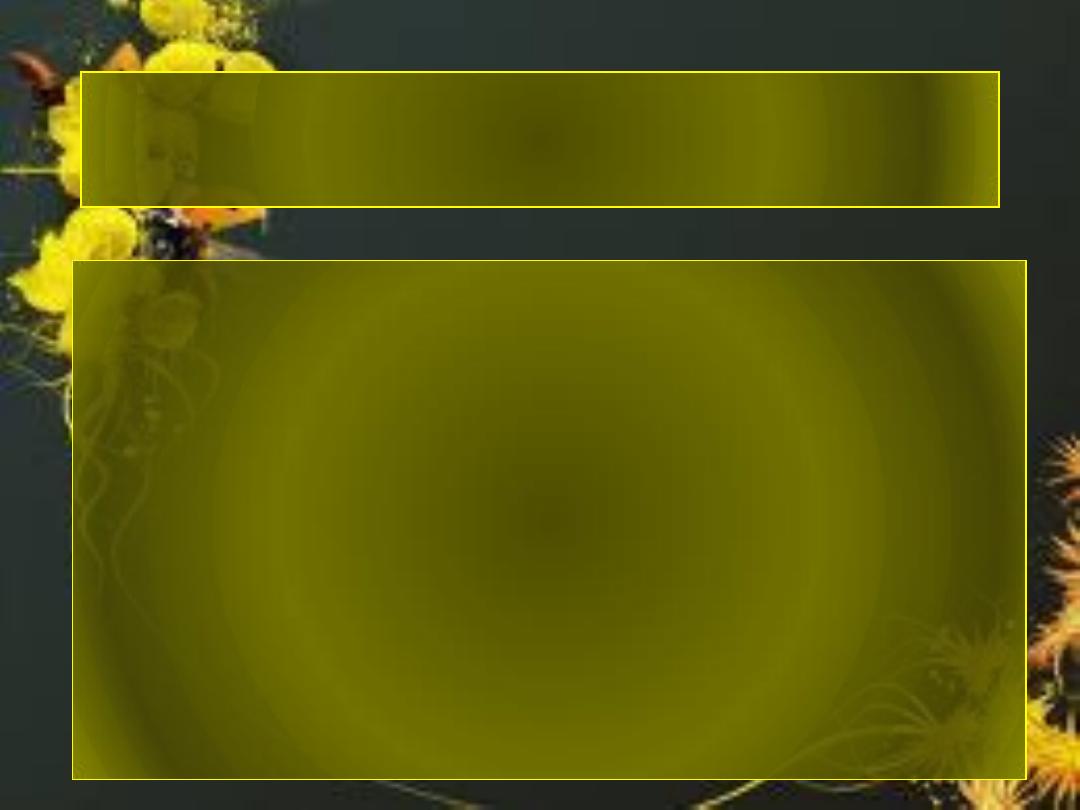
The Combination Syndrome is a
Result of Three Main Factors
• The great magnitude of forces
involved.
• The unsuitability of the denture
foundation to resist them.
• Particularly
unfavorable
occlusal
relationship.

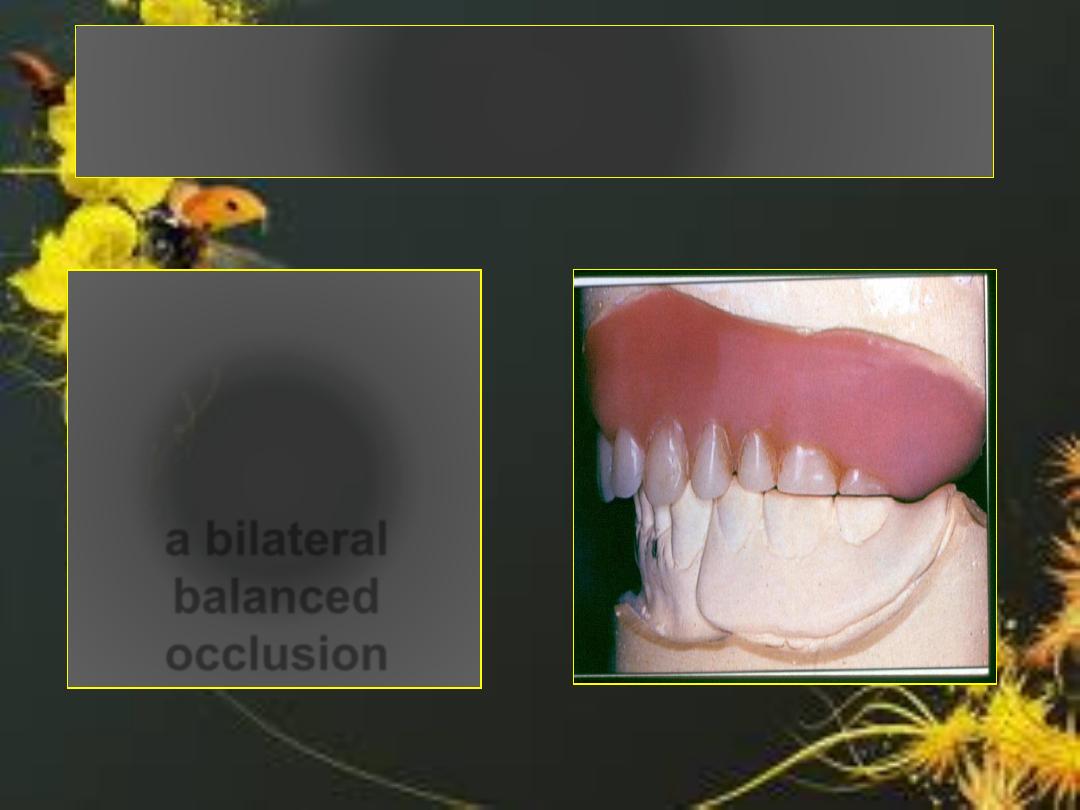
1- With some
careful grinding
of the canines
we can produce
a bilateral
balanced
occlusion
Single denture opposing
distal extension RPD
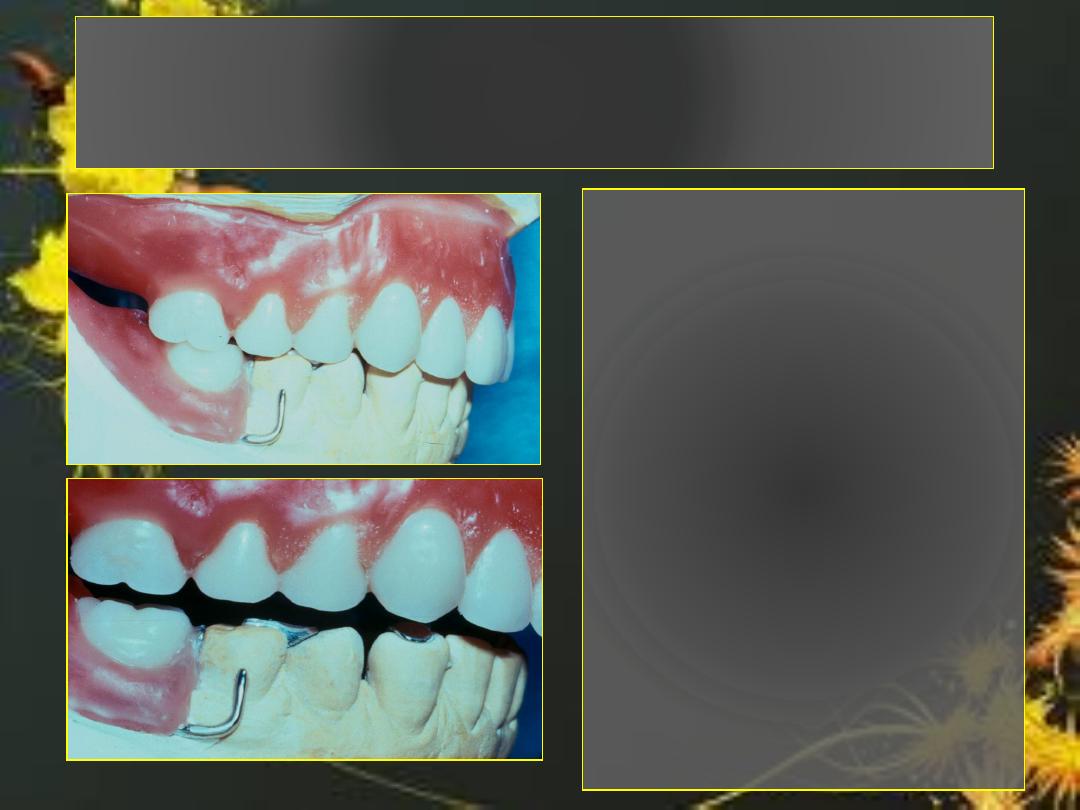
2- Occlusal rests
have been used to
idealize the
occlusal plane.
balancing ramp
are compatible
and bilateral
balance is
maintained.
Single denture opposing
distal extension RPD
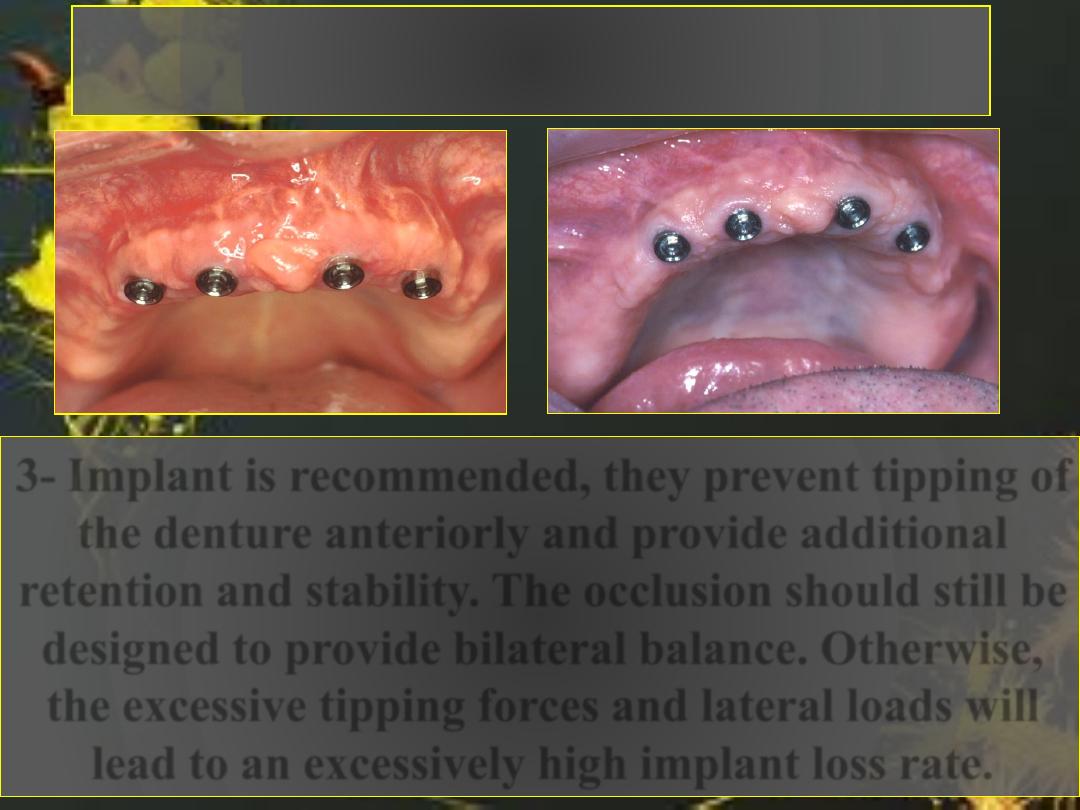
Osseointegrated Implants Overlay
Denture against Lower Partial Arch
3- Implant is recommended, they prevent tipping of
the denture anteriorly and provide additional
retention and stability. The occlusion should still be
designed to provide bilateral balance. Otherwise,
the excessive tipping forces and lateral loads will
lead to an excessively high implant loss rate.
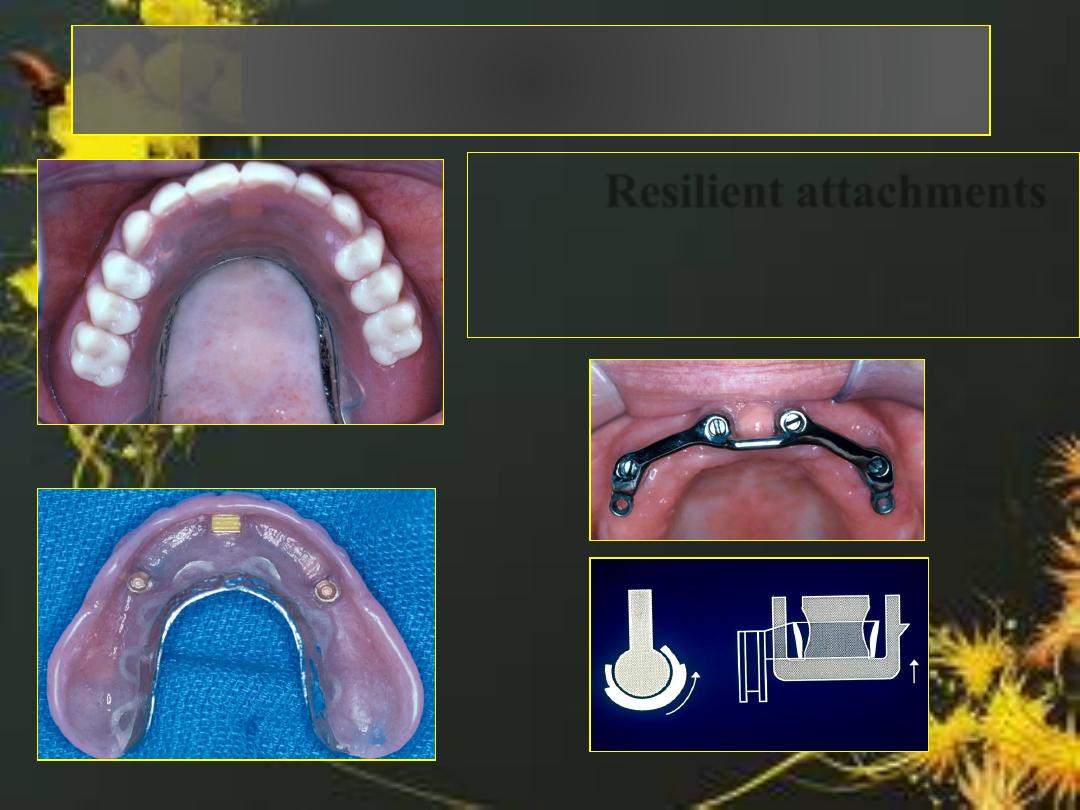
Note:
Resilient attachments
on the distal sides of the bar
bilaterally, are preferred.
Osseointegrated Implants Overlay Denture
against Lower Partial Arch
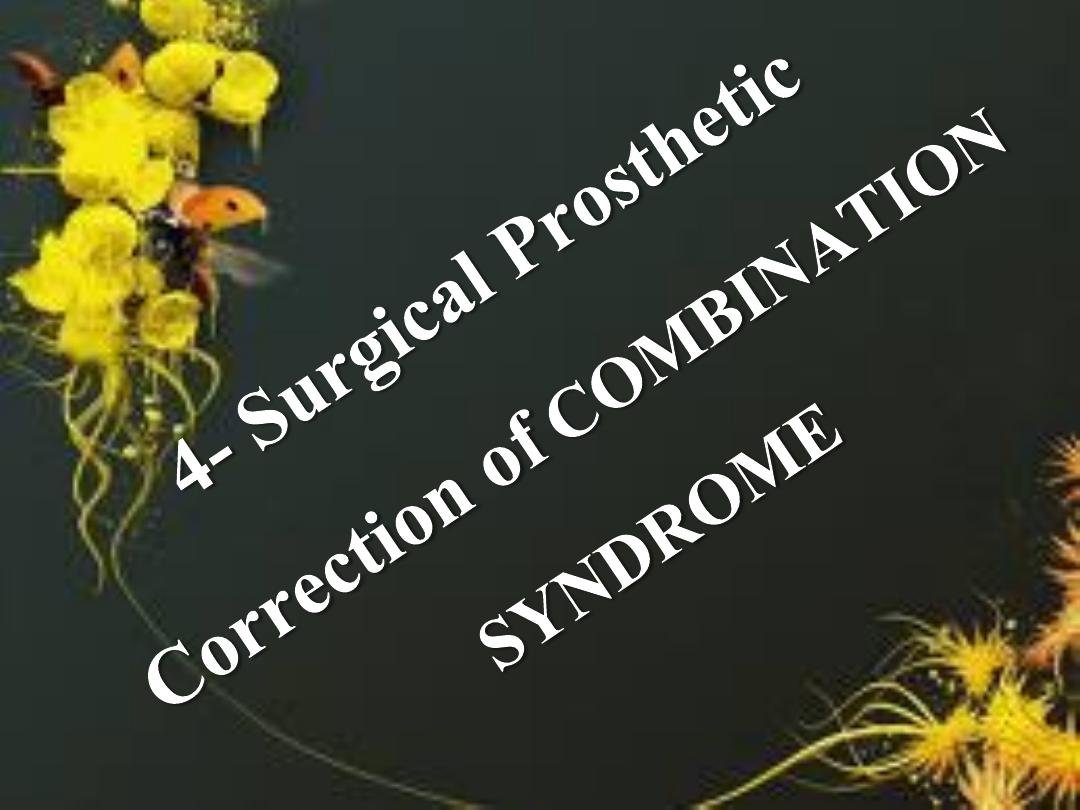

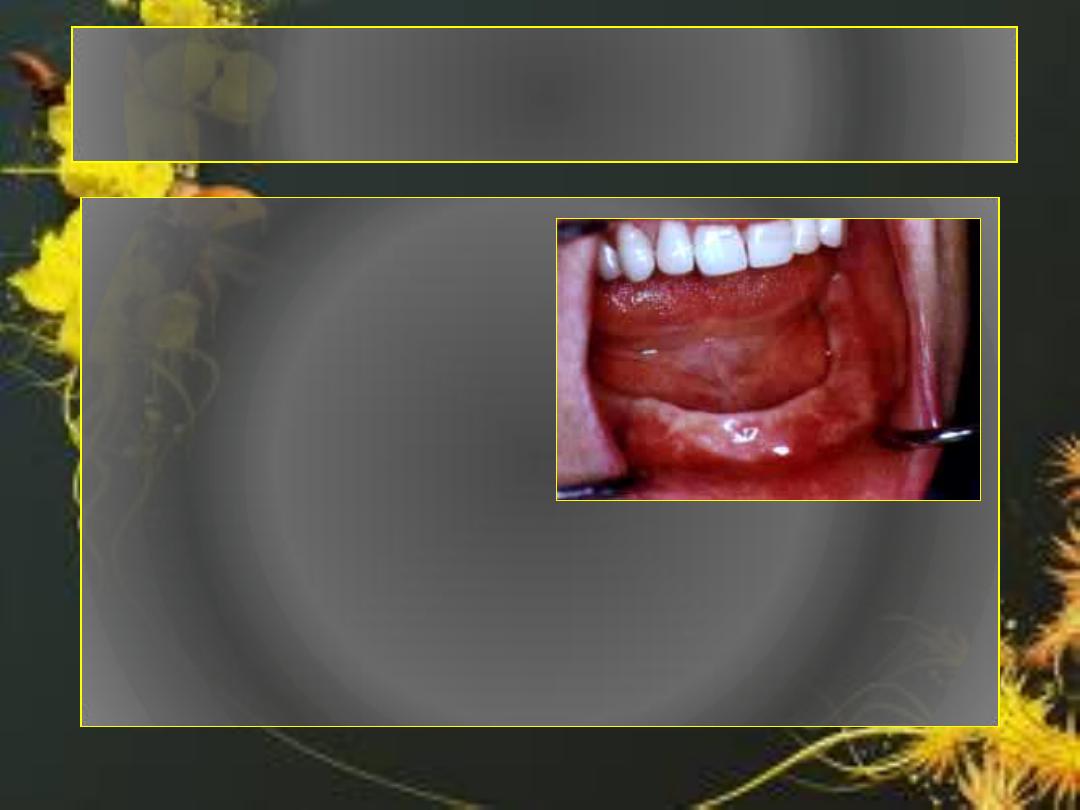
Edentulous Mandible Opposing
Dentate Maxilla
Difficulties:
1. Excessive load
2. Occlusal problems
3. Fracture
4. Tooth wear
5. Tissue abuse
6. Minimal denture foundation area
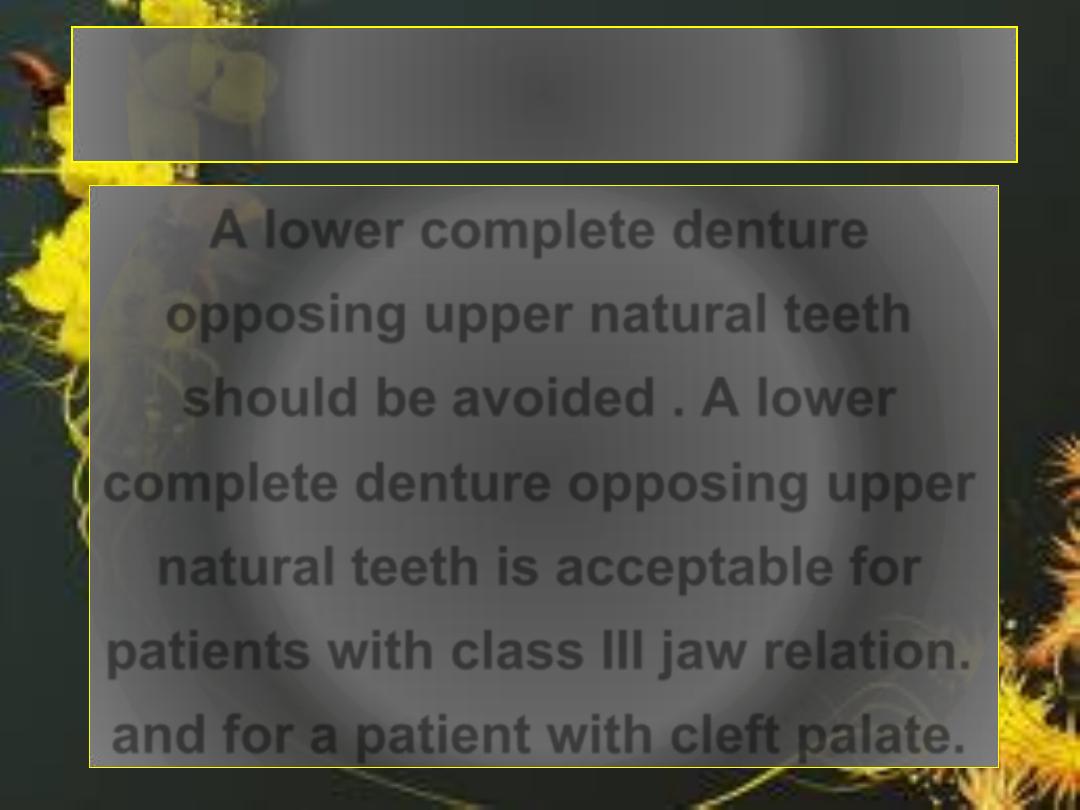
A lower complete denture
opposing upper natural teeth
should be
avoided
. A lower
complete denture opposing upper
natural teeth is
acceptable
for
patients with class III jaw relation.
and for a patient with cleft palate.
Edentulous Mandible Opposing
Dentate Maxilla
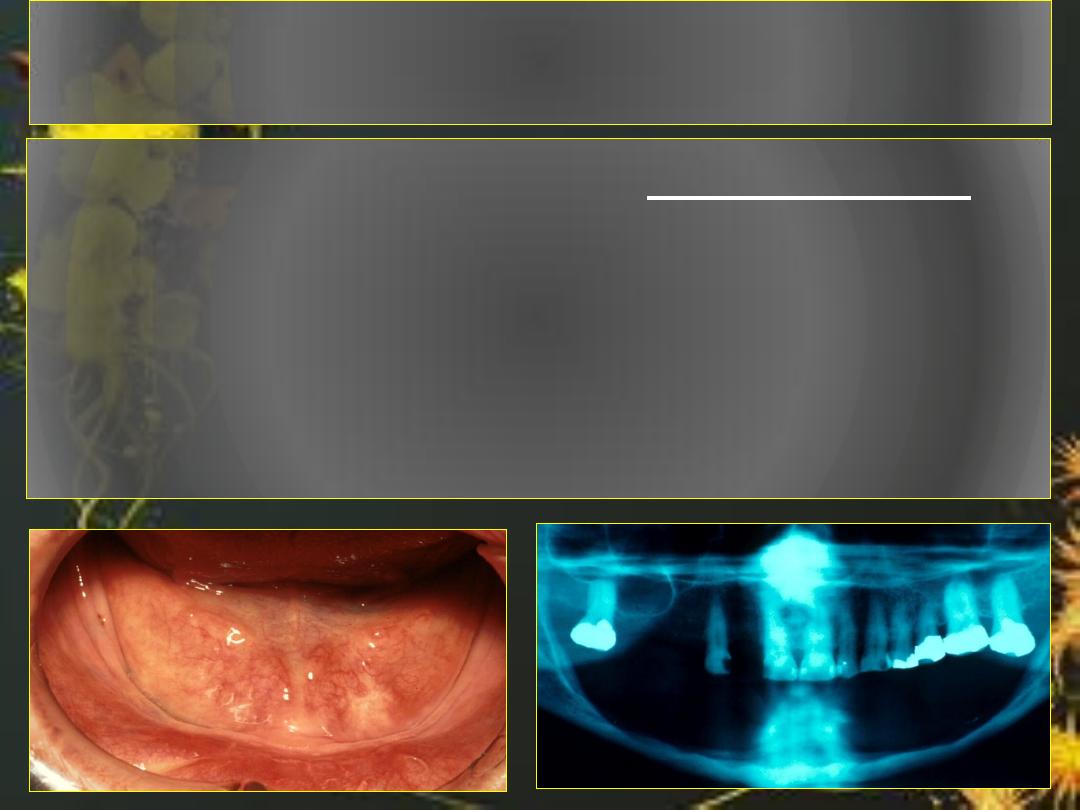
Edentulous Mandible Opposing Dentate
Maxilla
Lower single dentures are contraindicated
because they cause severe resorption as seen in
this patient. In past years many prosthodontists
recommended extraction of the remaining
maxillary teeth. Today other options are
available.
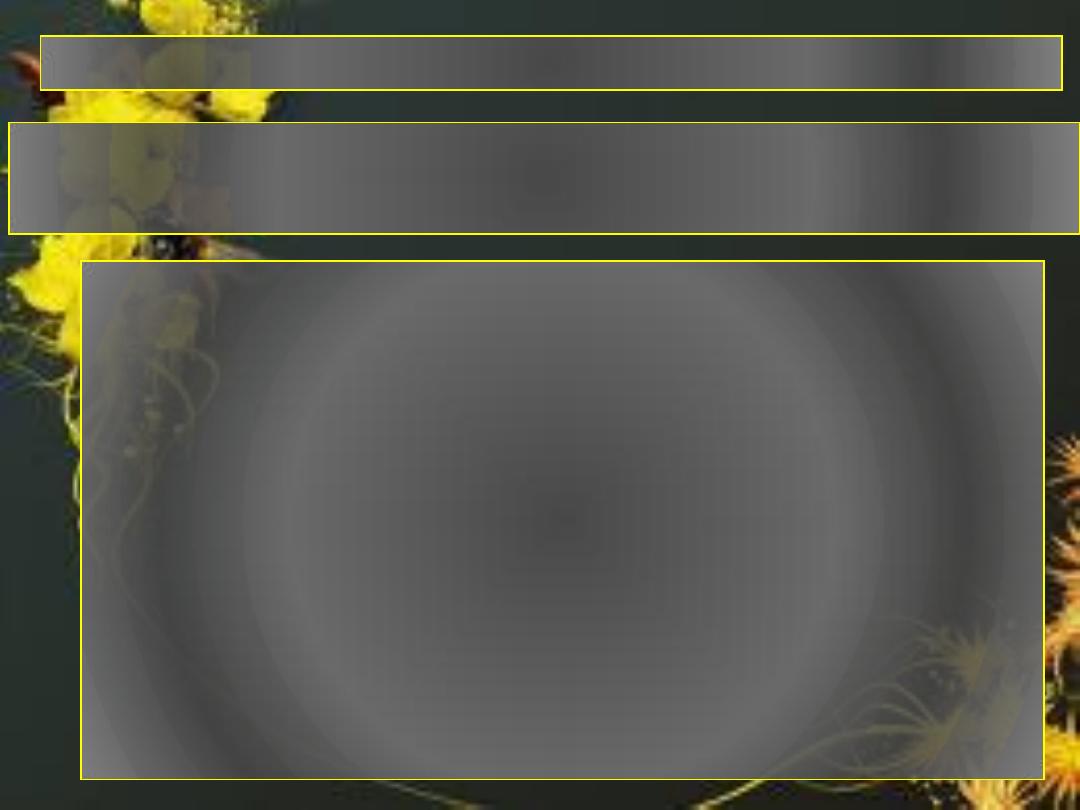
• Maximize denture base coverage
• Minimized occlusal forces
• Preprosthetic surgery
• Retention of key roots
• Use of osseointegrated implants
• Temporary soft liners replaced on a regular
basis
• Permanent soft liners
Options other than extraction of maxillary dentition For
Preservation of the Residual Alveolar Ridge
Edentulous Mandible Opposing Dentate Maxilla

You could…..
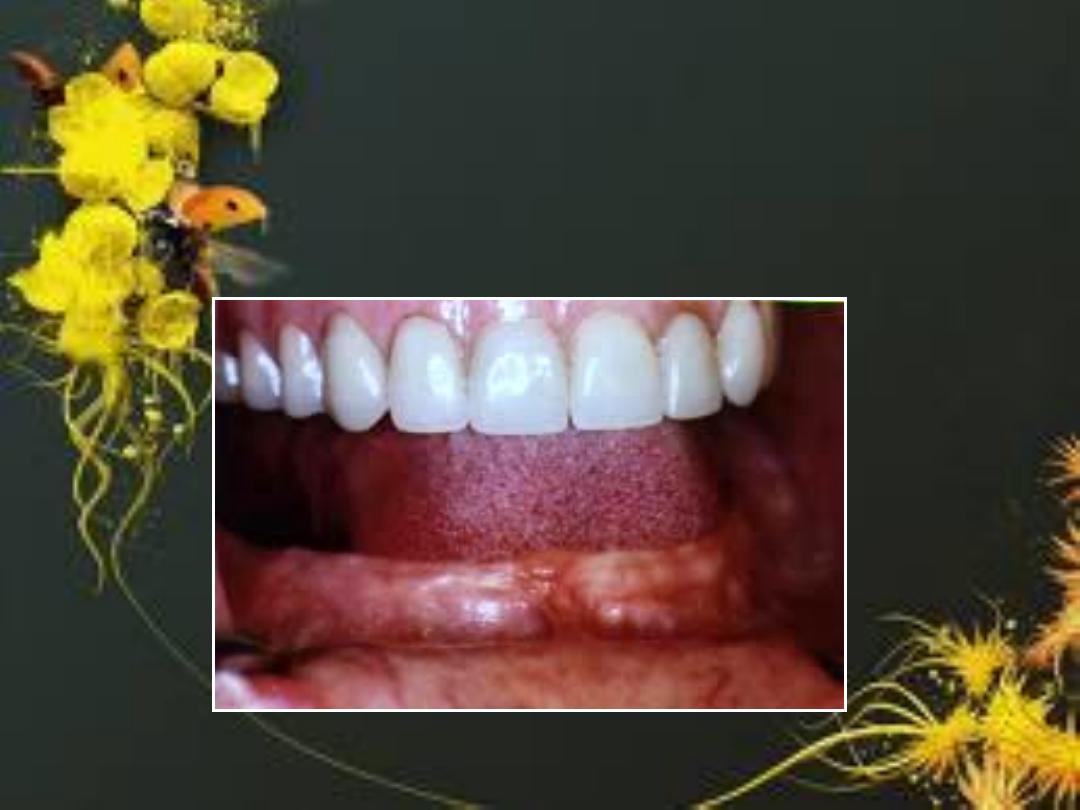
Lower Ridge Augmentation is
done, if the lower R.R. was so
resorbed.
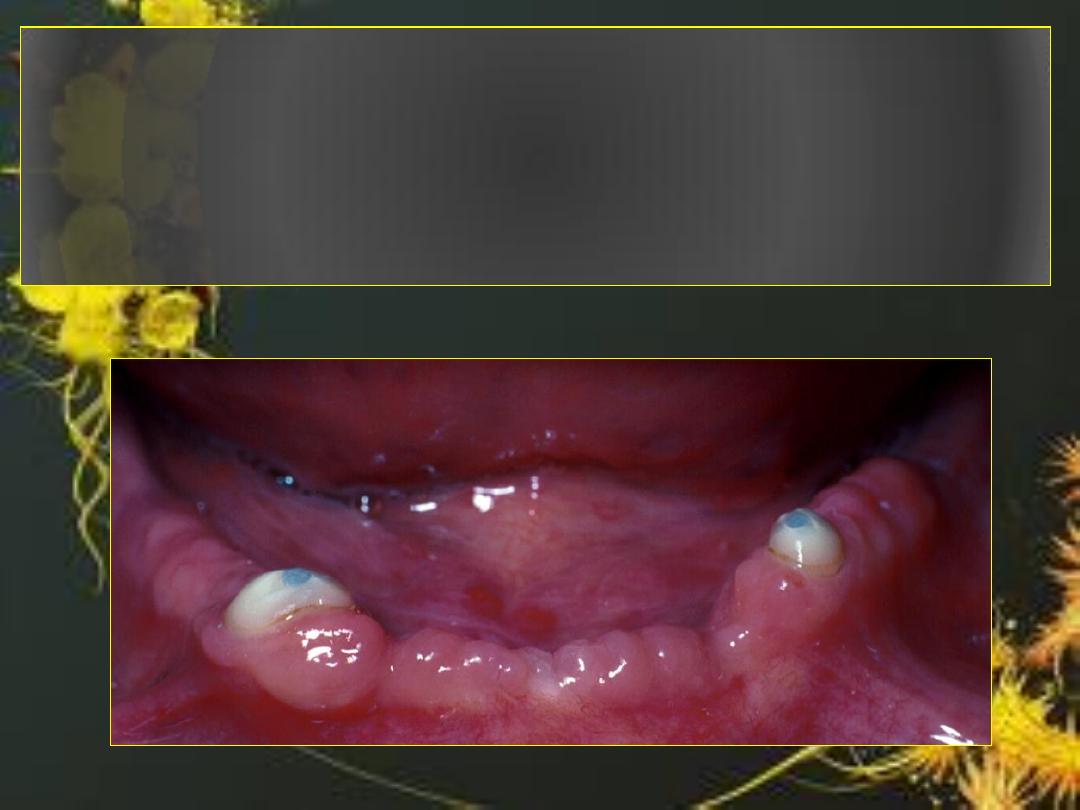
Retained Roots can Used to Support
Over Denture
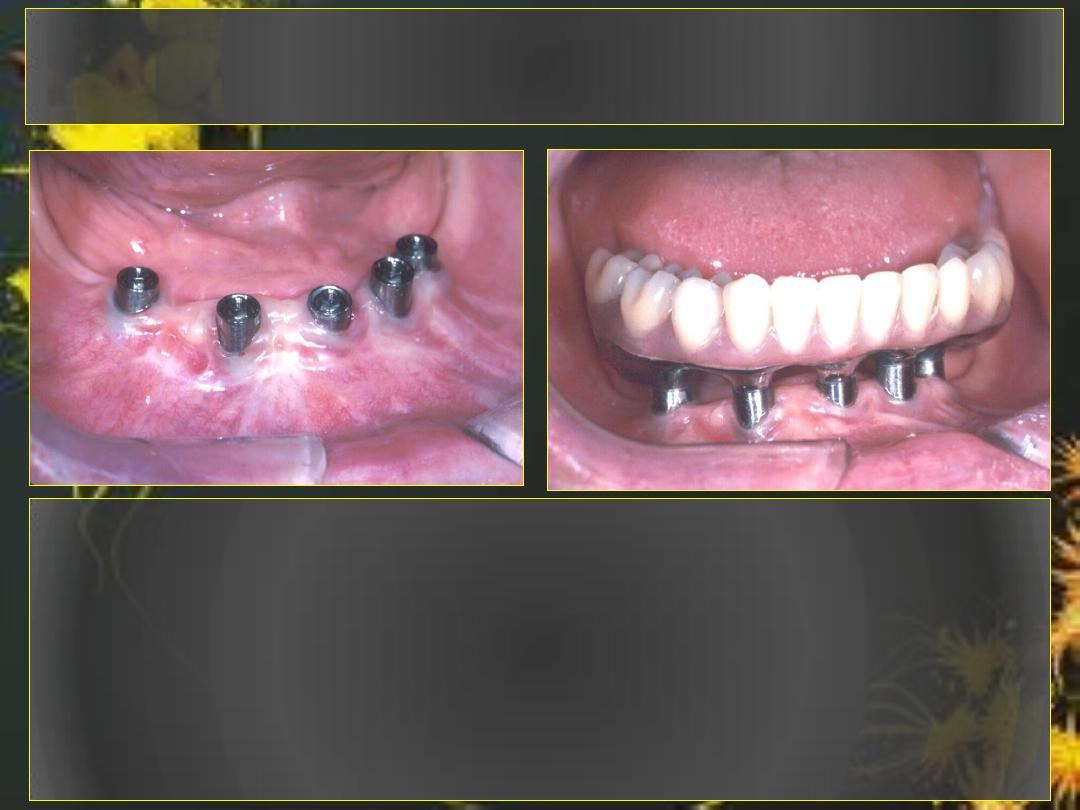
Osseo-integrated
Implants
Opposing
Dentate
Maxilla
This type of prosthesis stops the process of
resorption of the mandible. It is therefore the
most desirable method for restoring the
edentulous mandible that opposes a fully dentate
maxilla.
